Trainings
An Annual Steering Group Meeting and Training of the SMARTI Project held at Goris State University, October 6-8, 2021
On October 6-8, 2021, a 3-day annual steering group meeting and training was held at Goris State University (GSU) in a hybrid format. At the beginning of the meeting welcoming speeches were made by Artush Ghukasyan, Acting Rector of GSU, by Khachatur Ghazeyan, Acting Rector of the Public Administration Academy of the Republic of Armenia (PAARA), and by Gerard Cullen, the SMARTI Project Manager and the representative of the Project grant-holder, Dresden University of Technology (TUD). During the meetings, the Armenian and Russian PC Universities succinctly presented the activities carried out so far, more specifically, the strengths and weaknesses of the ESP self-study manual “Headway”, the mechanisms and strategies of the ECTS system implemented in their HEIs and the extent to which they are similar to or different from the guidelines and key features described in the “ECTS Users’ Guide”. From Vanadzor State University (VSU) a presentation was made by Lusik Vardanyan, the SMARTI Project local coordinator, the Associate Professor of the Chair of Foreign Languages and Literature. Gayane Kanaryan, the VSU publicity officer of the SMARTI Project, the Associate Professor of the Chair of Mathematics and Informatics was also actively involved in these three-day discussions and a dissemination training organised by the Catholic University of Portugal (UCP). The other VSU representatives, the key persons of the VSU SMARTI working group(Arine Danielyan, Assistant Professor of the Chair of Foreign Languages and Literature, Nune Khublaryan, Associate Professor of the Chair of Mathematics and Informatics, Anna Khachatryan, Acting Head of the Quality Assurance Centre, and Gohar Dokholyan, International Relations and Grants Promotion Specialist) participated in the meetings online.
The ARM And RF country presentations on conducted and upcoming dissemination activities were made by Tereza Khechoyan, the local coordinator of the Armenian partner universities, Vice-Rector for Foreign Relations of PAARA and by Olga Safonkina, the local Coordinator of the Russian partner universities, the representative of Ogarev Mordovia State University (MRSU). The participants of the meetings also discussed some important tasks and issues related to the launch of the EMI Centres with procured equipment in the PC HEIs.
During the meetings there were also online presentations: Eduardo Cardoso, the leader of WP1, the representative of UCP elaborated on the EU inventory of the best practices and emphasized the importance of SCL (student-centred learning) in EMI teaching; Adam Shore, the representative of Liverpool John Moores University (LJMU), UK, introduced the ESP training program and his colleagues from the same University highlighted the importance of “Rosetta Stone” license in improving the EMI teachers’ English language proficiency level; Valeriya Racheeva presented the SMARTI website and raised some crucial steps that are to be taken to improve the website in terms of its structure and content.
In order to be eligible to participate in the upcoming training the ESP teachers from PC Universities took an online “English Language Audit Test”. Our subject teachers Nune Khublaryan and Gayane Kanaryan successfully coped with B1 and B1+ levels.
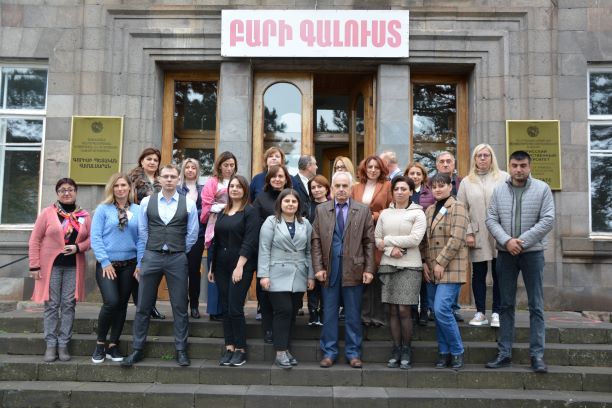
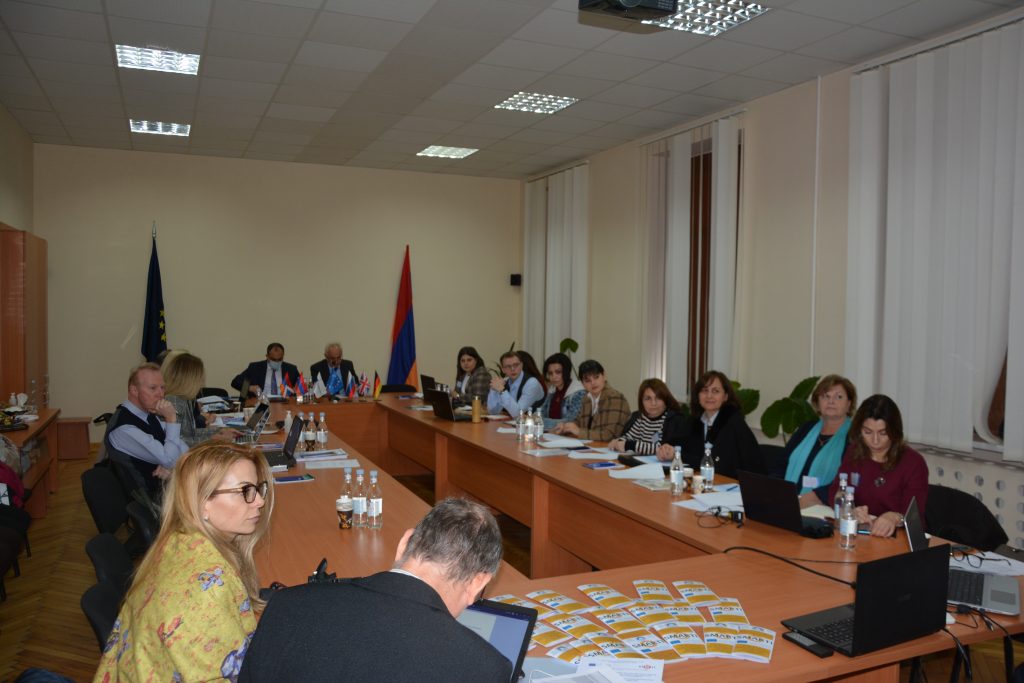

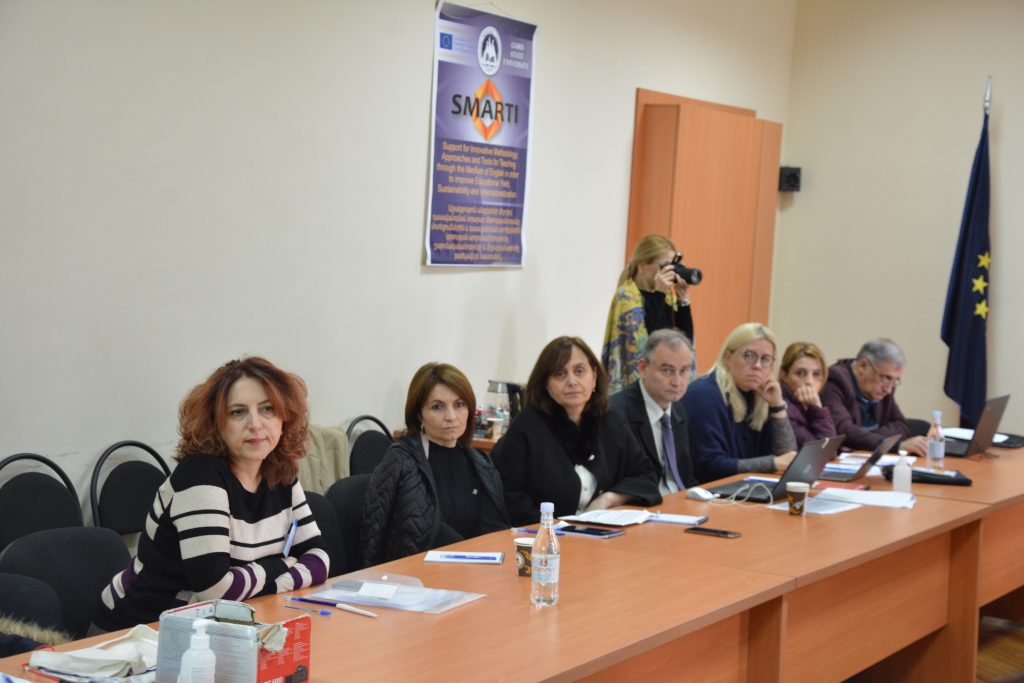

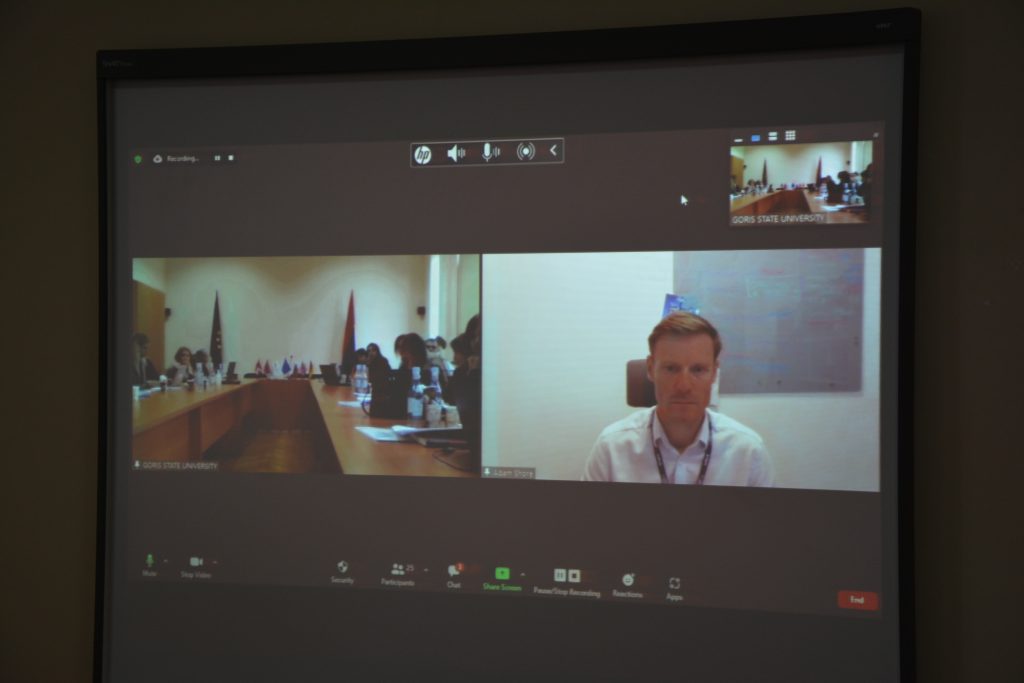
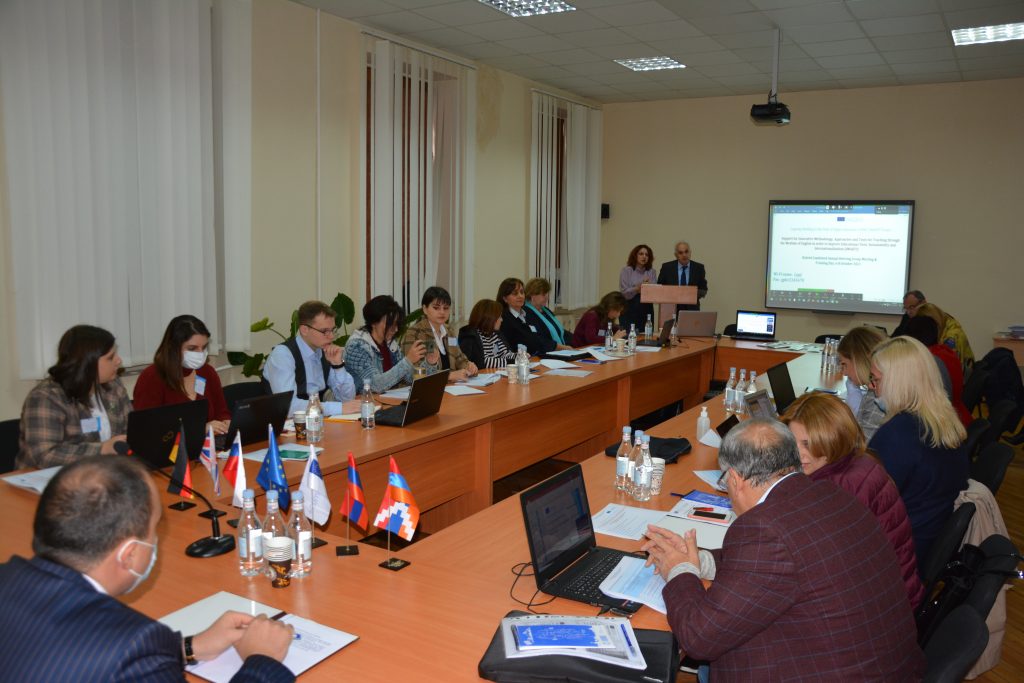
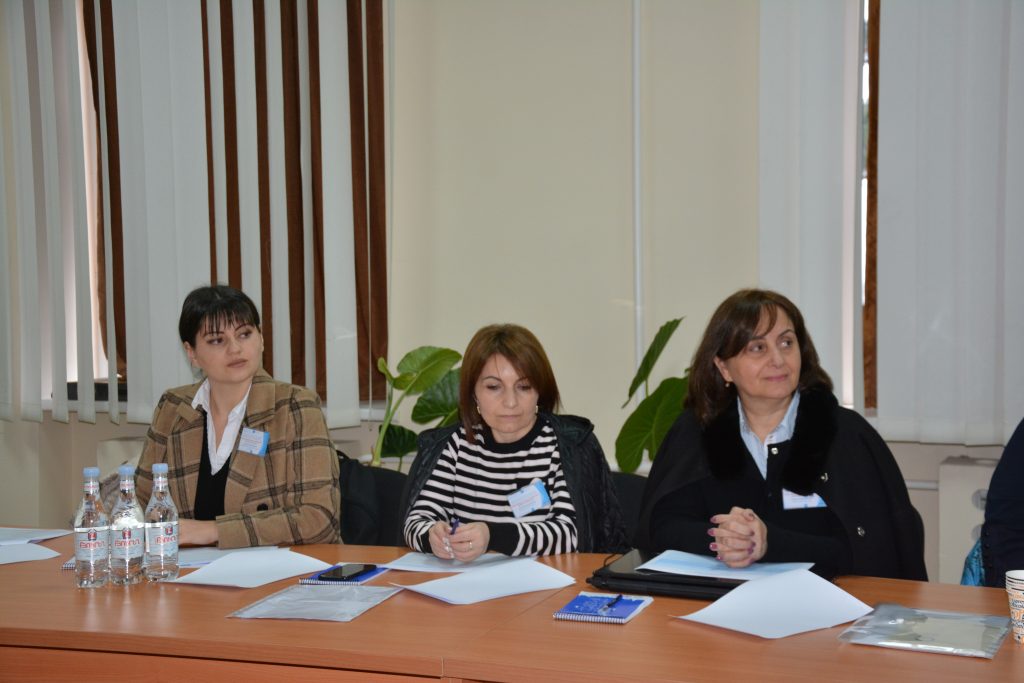
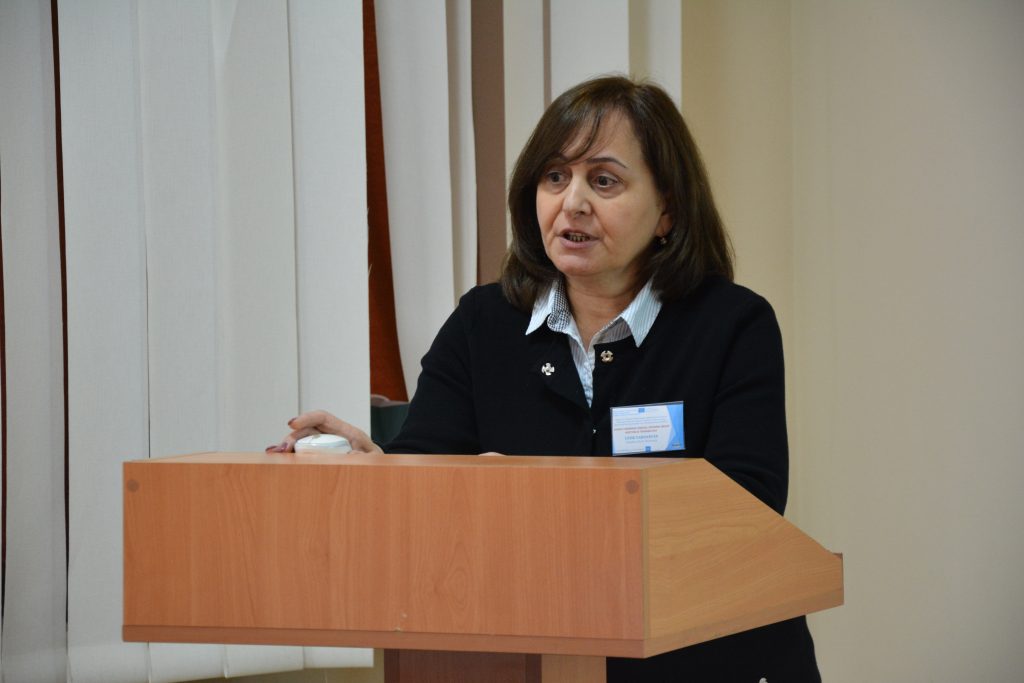
ESP and ECTS/Tuning Modular Training at the Catholic University of Porto, Portugal, in a Hybrid Format
On January 16-22, 2021, in the frames of Erasmus +‘‘Support for Innovative Methodology, Approaches and Tools for Teaching through the Medium of English in order to improve Educational Yield, Sustainability and Internationalization’’ (SMARTI) project a 5-day training was held at the Catholic University of Porto, Portugal (UCP) in a hybrid format. At the beginning of the meeting welcoming speeches were made by Eduardo Cardoso, professor from the host university, leader of WP1 and WP4 of the Project, and by Gerard Cullen, SMARTI Project Manager and representative of the Project grant-holder, Dresden University of Technology (TUD).
Representatives from partner universities and organizations from Europe, the Russian Federation and Armenia were participating in the training sessions which were conducted by EU trainers Gerard Cullen, Sven Riddell from Dresden University of Technology; Eduardo Cardoso, Tim Hogg from the Catholic University of Porto; Professors Maureen Royce, Ryan Wynn-Williams, Casey Beaumont from Liverpool John Moores University; Ieva Ziemele, Marina Platonova, and Tatiana Smirnova from Riga Technical University. Vanadzor State University was presented by Lusik Vardanyan, local project officer, Associate Professor of the Chair of Foreign Languages and Literature and Nune Khublaryan, Assistant Professor of the Chair of Mathematics and Informatics.
The training sessions were replete with theoretical materials and practical activities that were accompanied by lively group discussions. The training topics were primarily related to types and peculiarities of academic writing, ESP (English for specific purposes) and EMI (English as a means of instruction) methodologies, SCL (student-centred learning) strategies, module design, learning outcomes developed by Bloom’s Taxonomy, and criterion-based assessment.
In the frames of the Project, a series of in-house trainings are expected to be held in PC HEIs on the basis of the materials provided by the EU trainers.
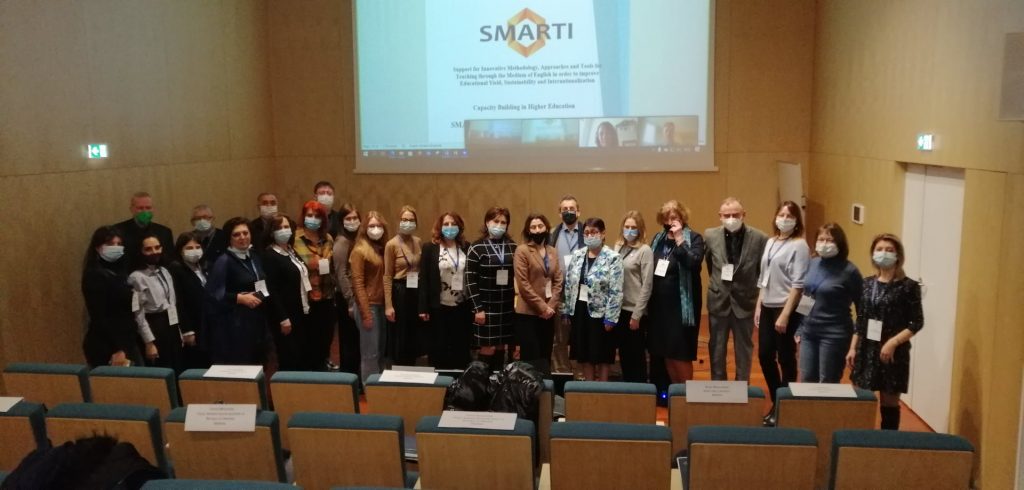
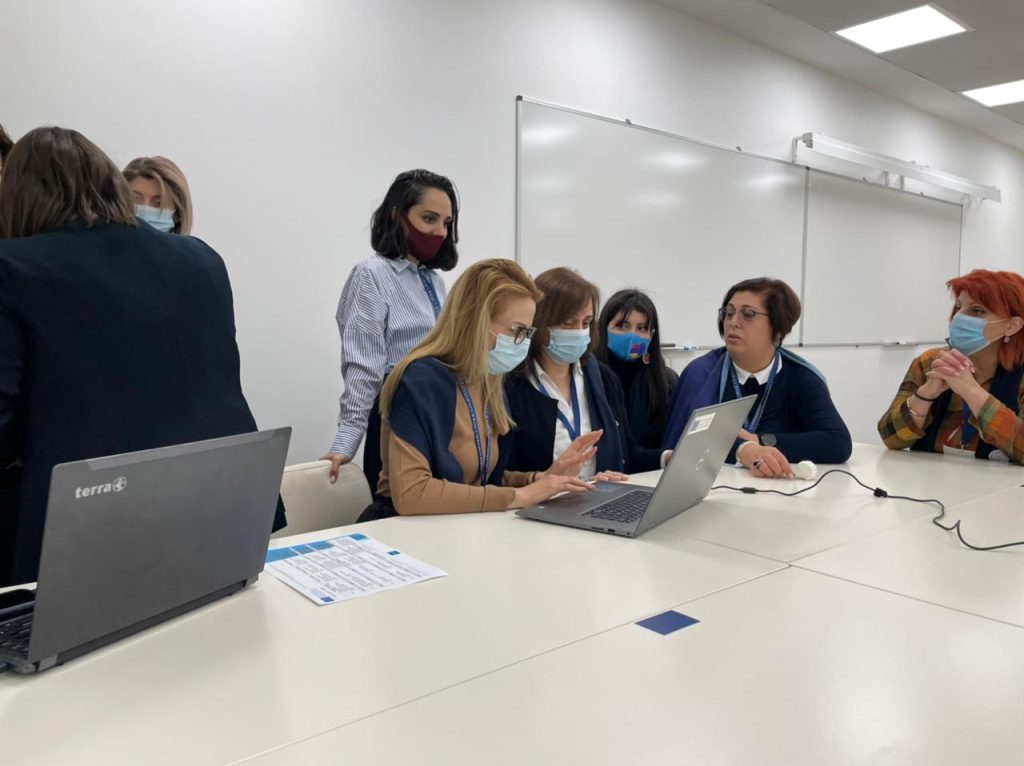
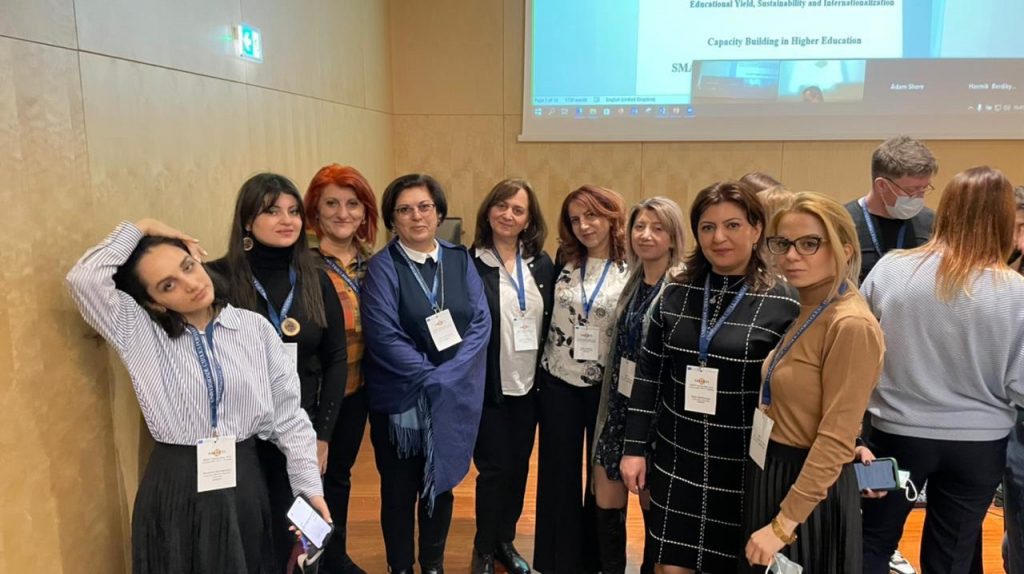
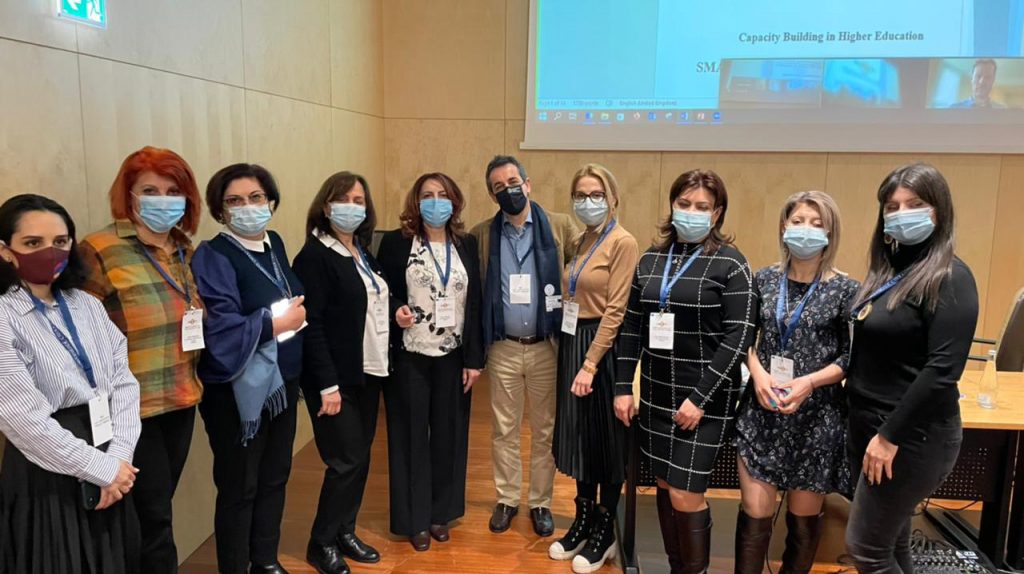
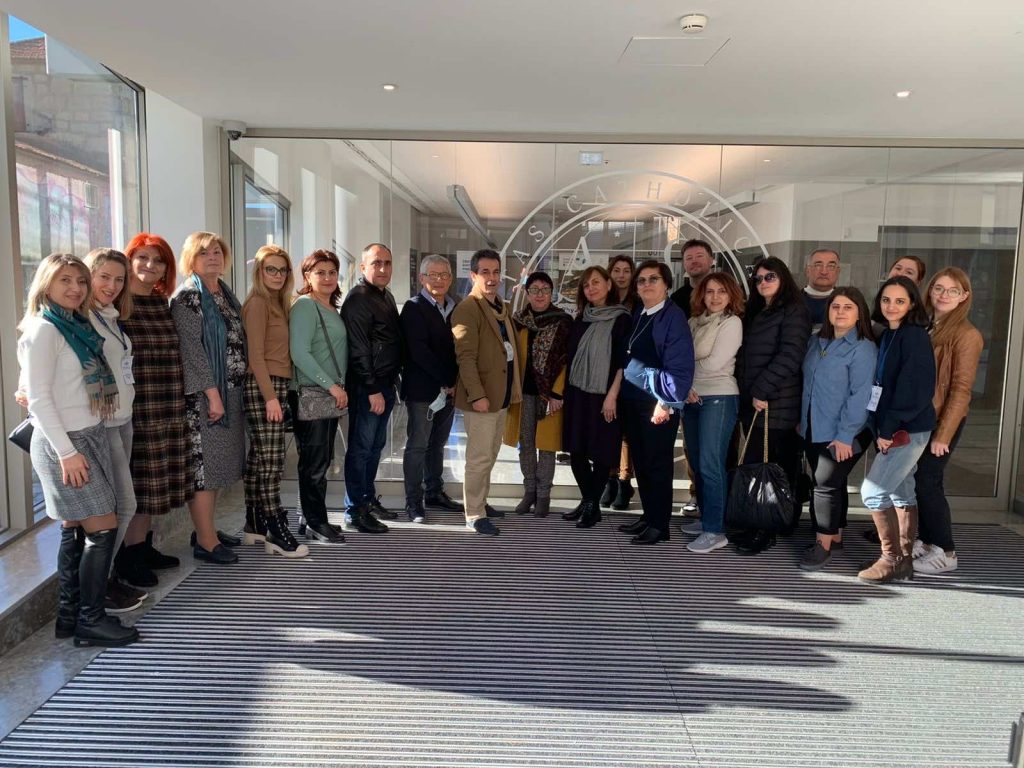

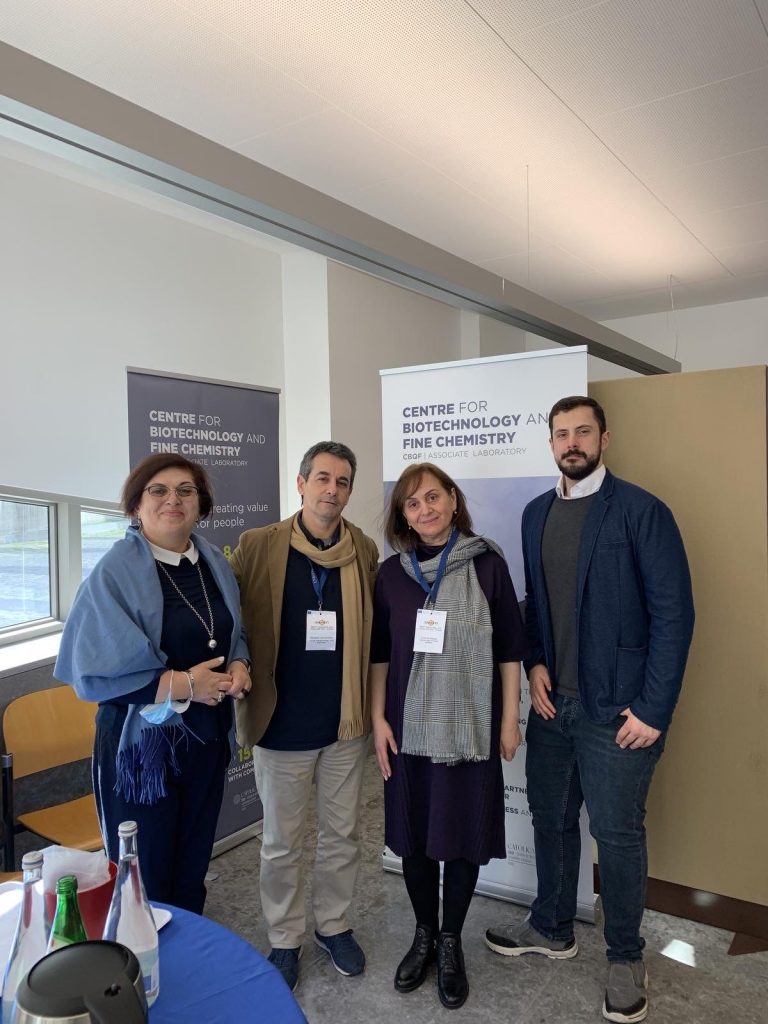
In-house Multiplication Training on ESP and ECTS at Vanadzor State University (28 March — 9 April)
We are happy to announce that the in-house multiplication training on ESP launched at Vanadzor State University on 28 March within the frame of Erasmus +‘‘Support for Innovative Methodology, Approaches and Tools for Teaching through the Medium of English in order to improve Educational Yield, Sustainability and Internationalization’’ (SMARTI) Project has successfully been completed. The three -hour face-to-face sessions devoted to ESP (English for specific purposes) and EMI (English as a means of instruction) methodologies as well as academic writing peculiarities were mainly based on the materials provided during the ESP/ECTS Tuning Modular Training held at the Catholic University of Porto, Portugal on January 16-22, 2022. The trainings were conducted by Lusik Vardanyan, local project coordinator, Associate Professor of the Chair of Foreign Languages and Literature and Nune Khublaryan, Assistant Professor of the Chair of Mathematics and Informatics, both of whom participated in the training sessions at UCP. During the first session, L. Vardanyan briefly presented the SMARTI Project highlighting the main activities carried out and the tangible outcomes achieved so far. She also underlined the importance of the ESP training for the VSU academic staff who are expected to implement and/or teach courses or modules in English within two Academic Programs (Bachelor Program “English Language and Literature” and Master Program “Software Engineering”). The choice of English as the working language during the training was largely substantiated by this factor. However, the language didn’t seem to be a barrier for the SMARTI VSU working team and the internal stakeholders (VSU Rector, Vice-rector for Academic Affairs, Head of Educational Process Management Department, Deans of the Faculties, Heads of the Chairs, administrative and academic staff representatives and bachelor/master students) to be actively involved in heated yet lovely and helpful discussions that followed presentations on academic writing techniques and strategies. The participants definitely enriched their knowledge and skills of making effective presentations, interpreting different graphs and charts, identifying the main differences between formal and informal writing in general, and between the types of cover letters in particular. The in-house training sessions devoted to ECTS are to be held on 5-9 April.
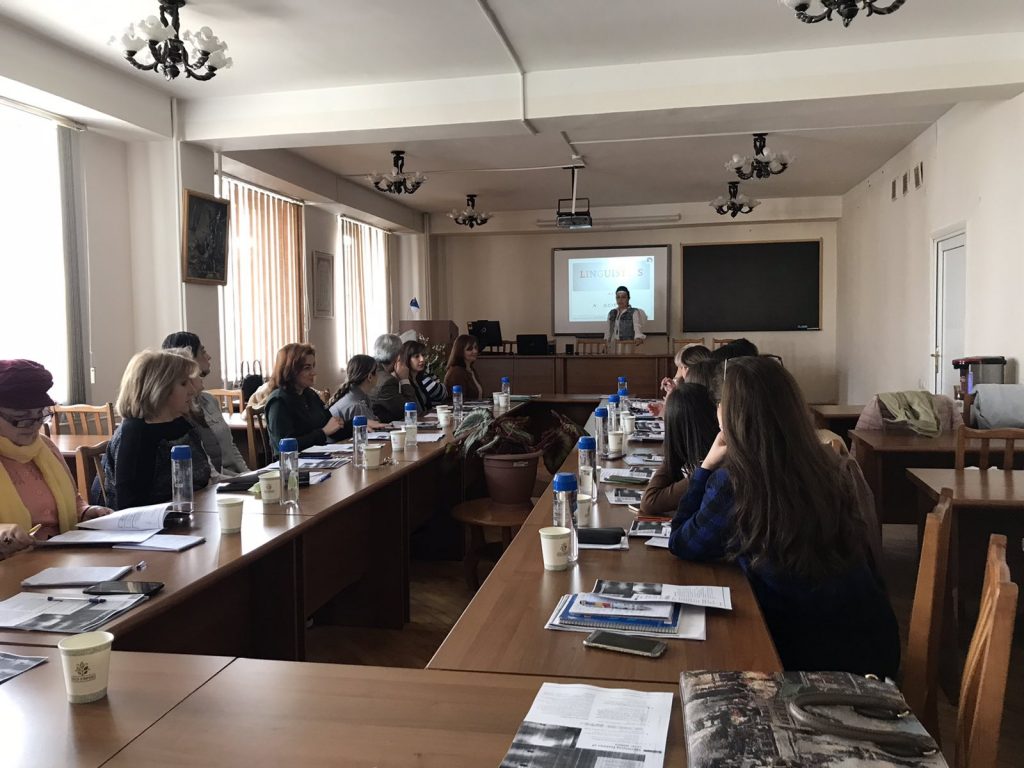
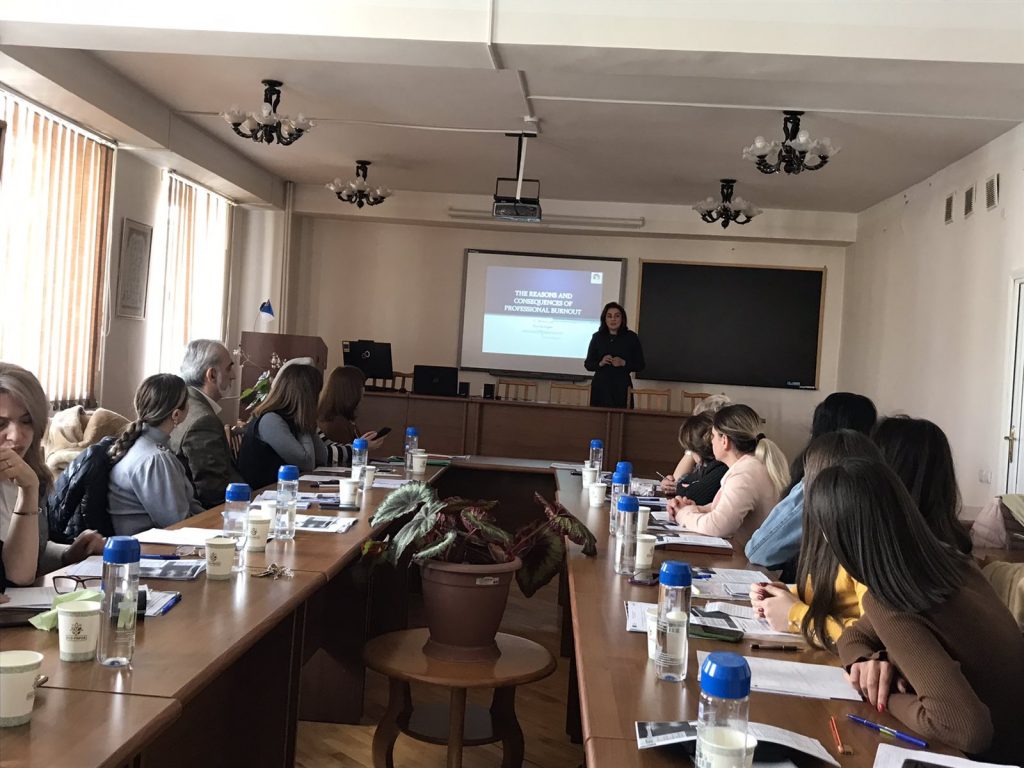
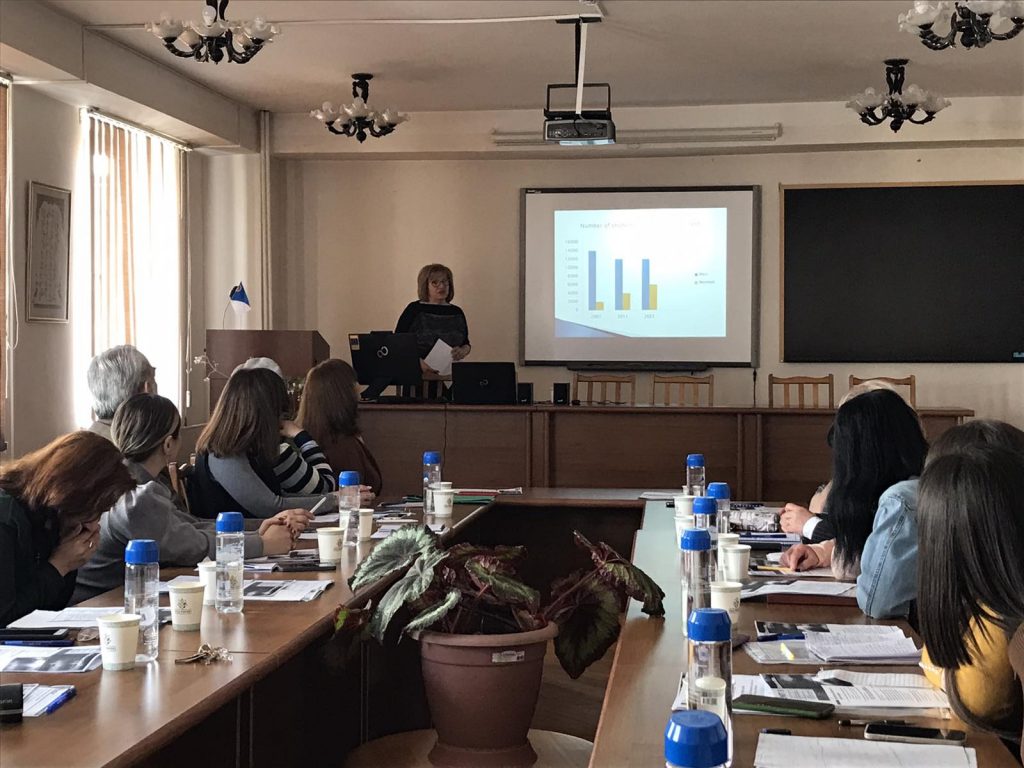
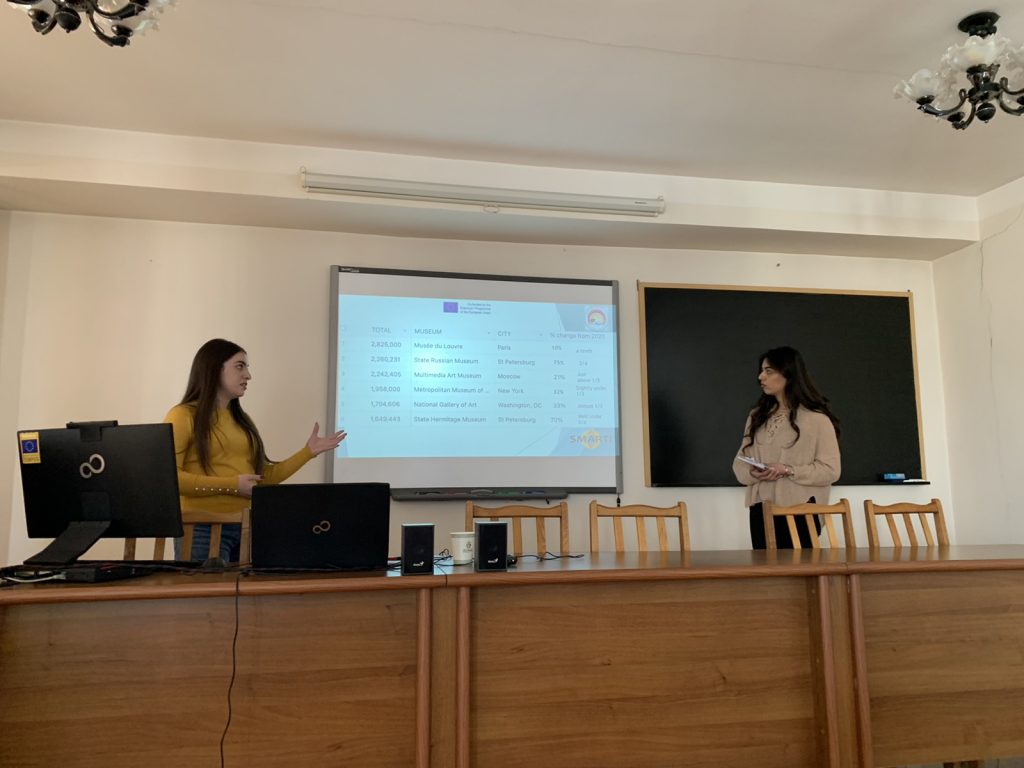
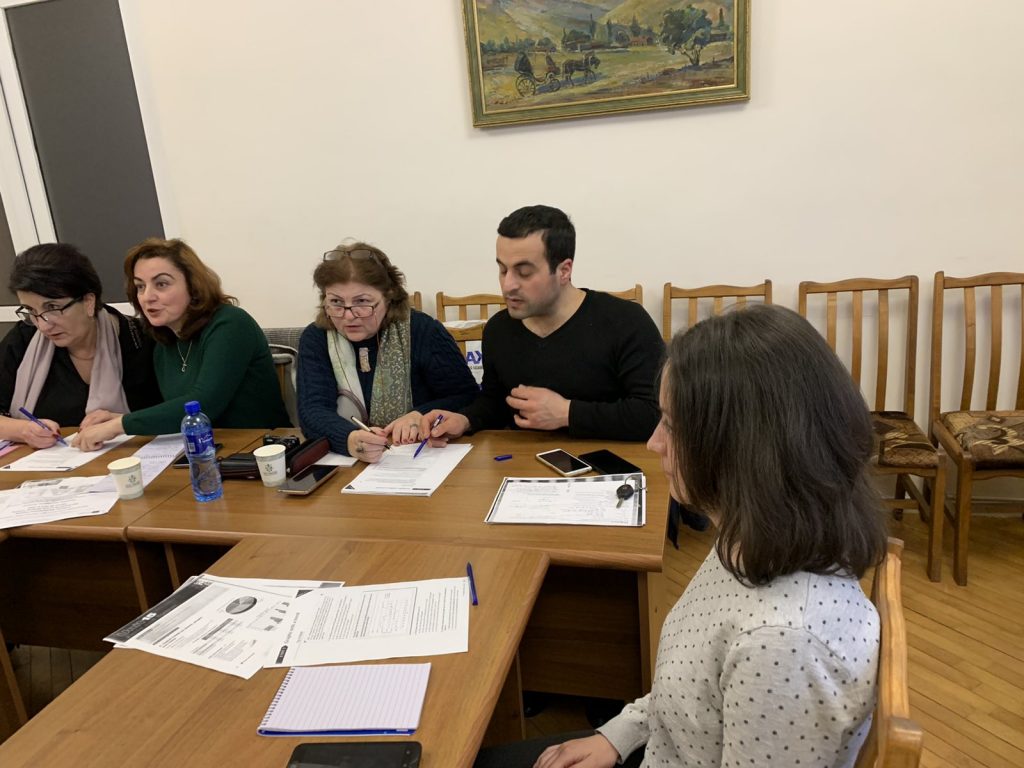
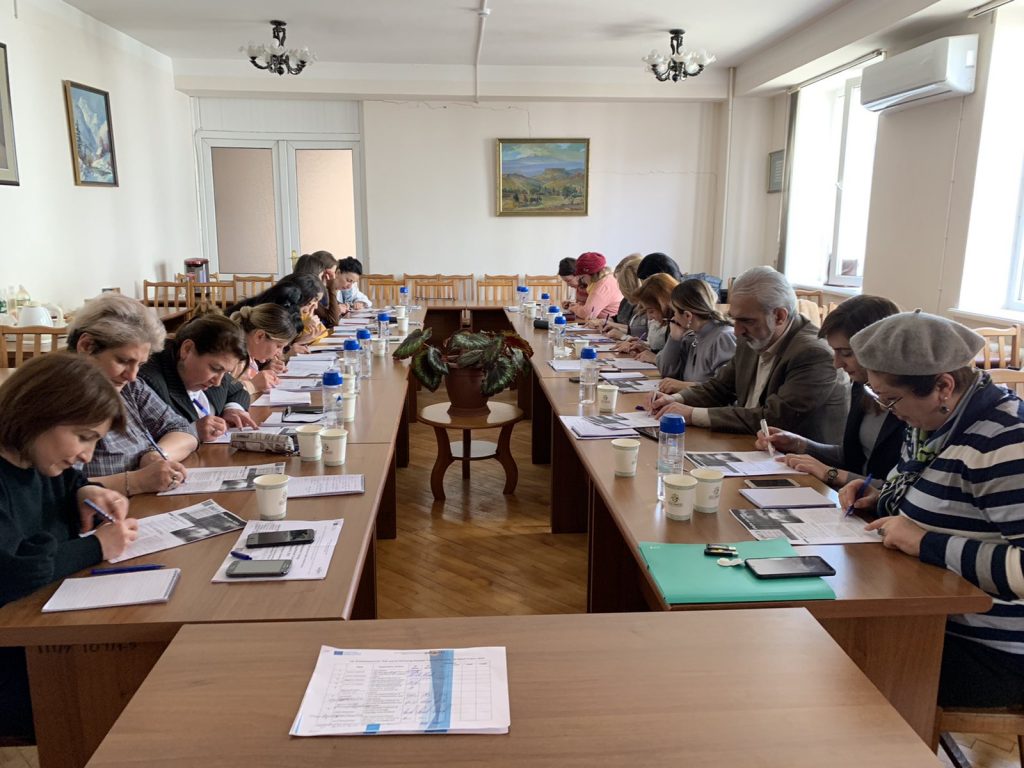
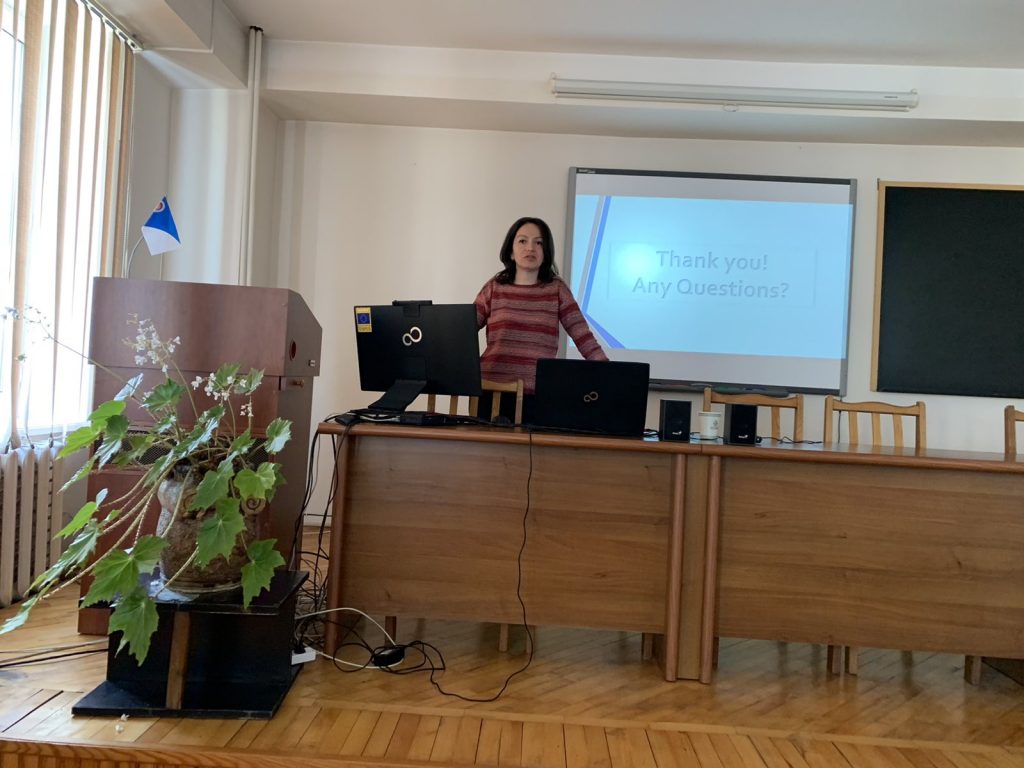
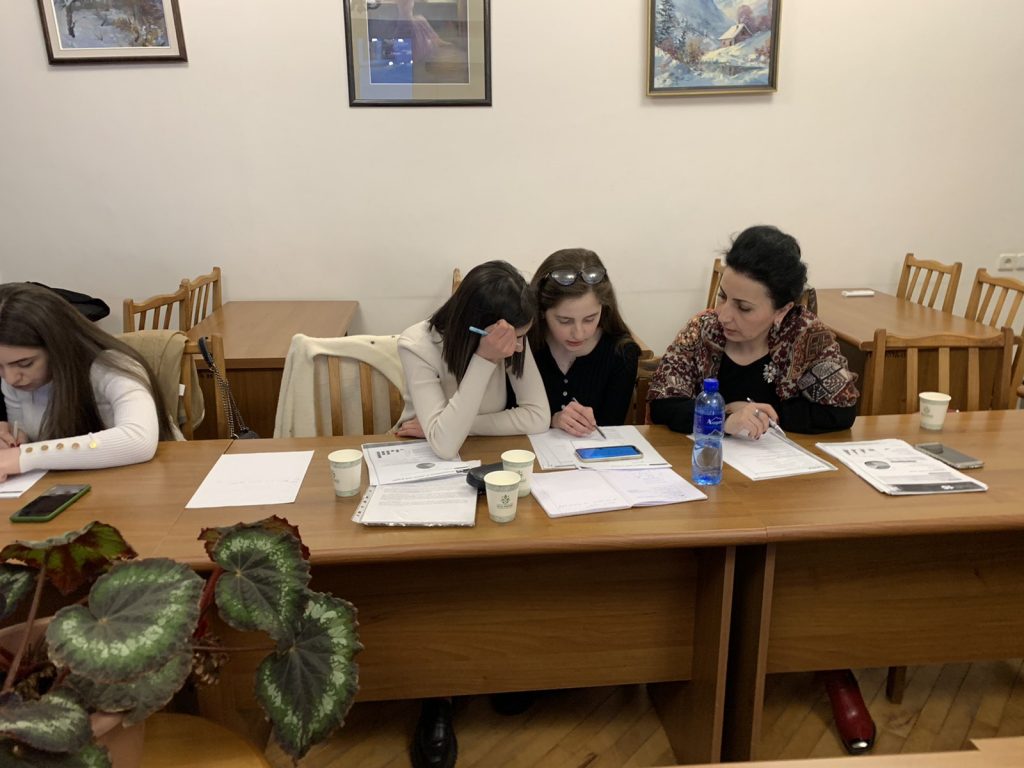
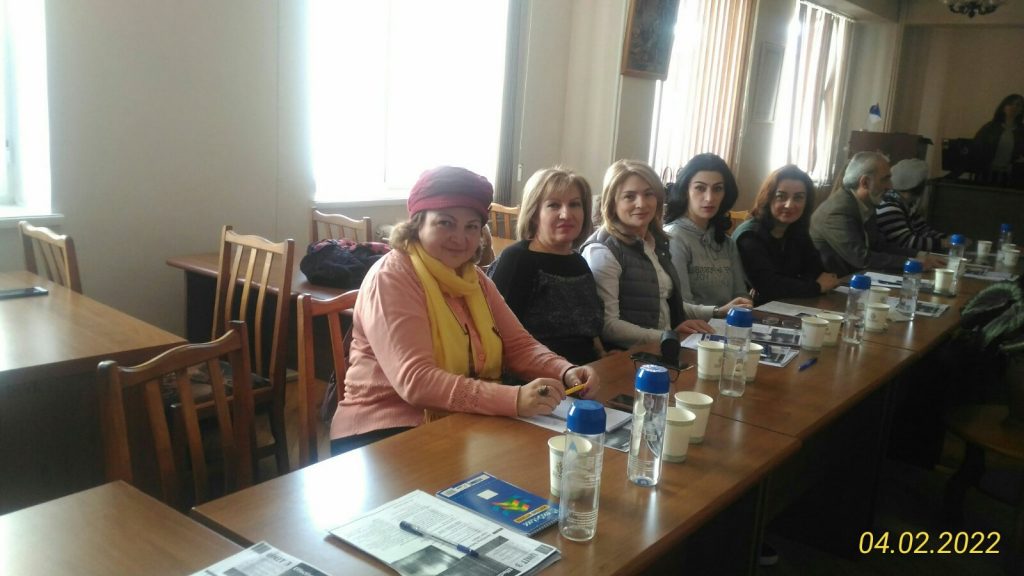
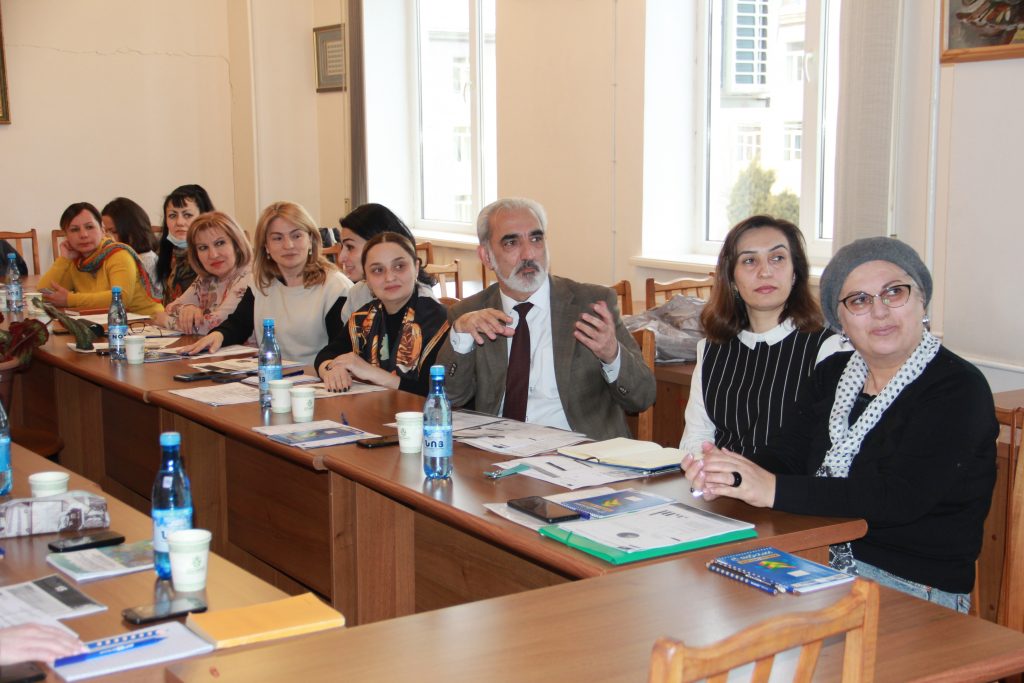
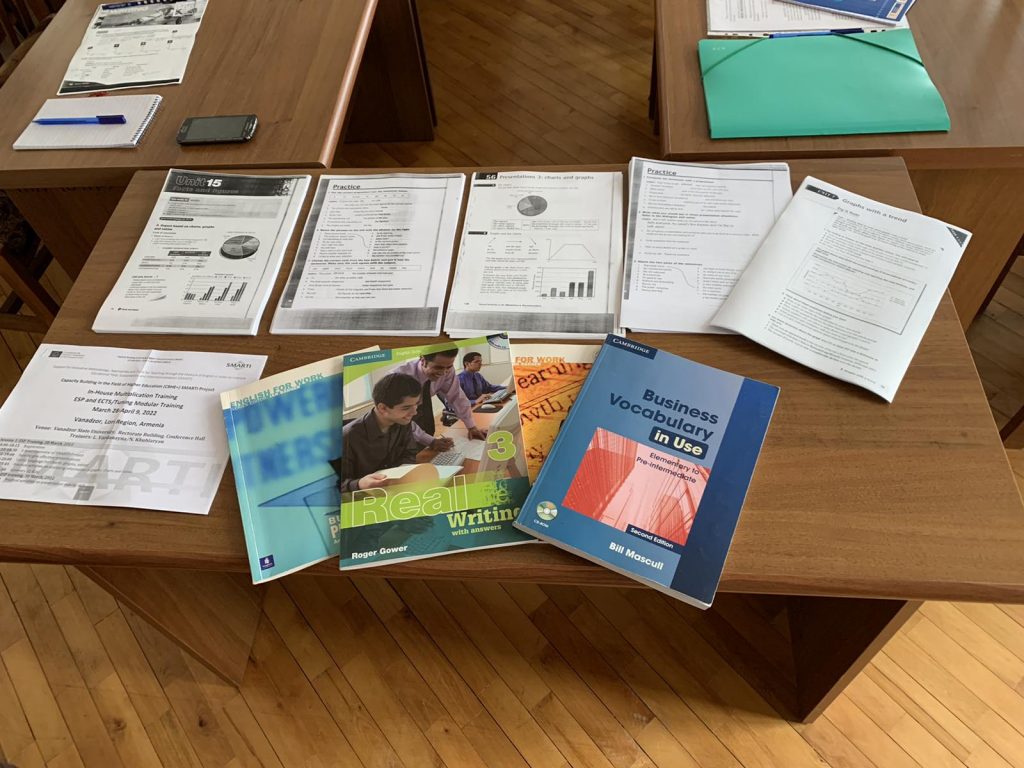
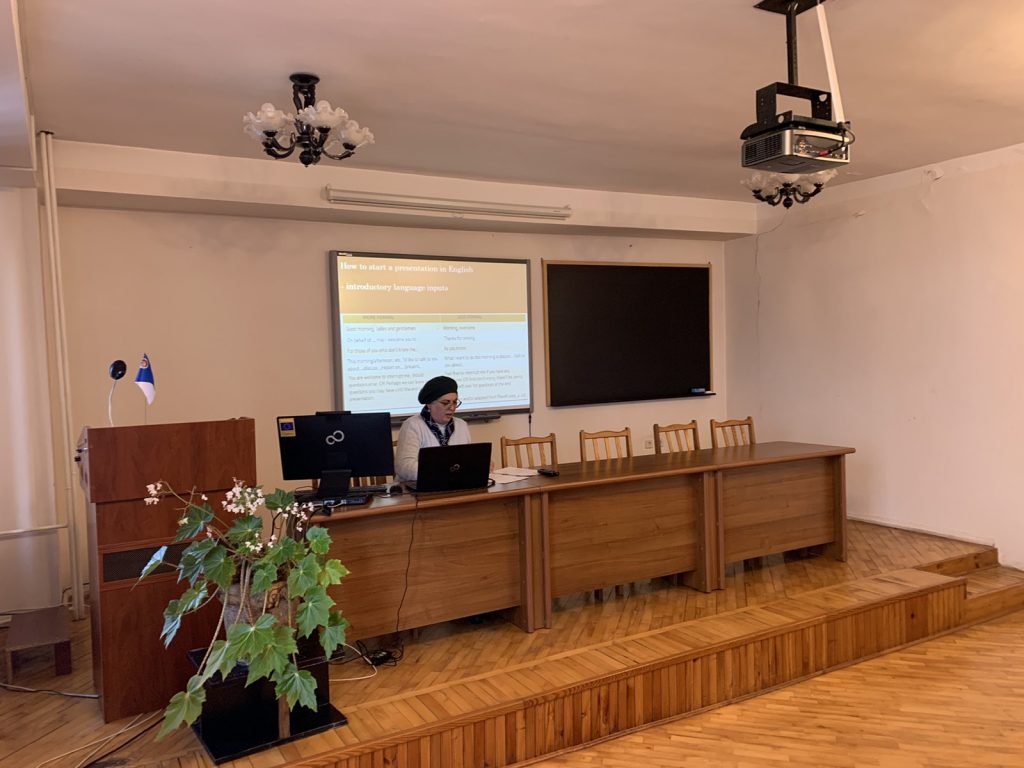
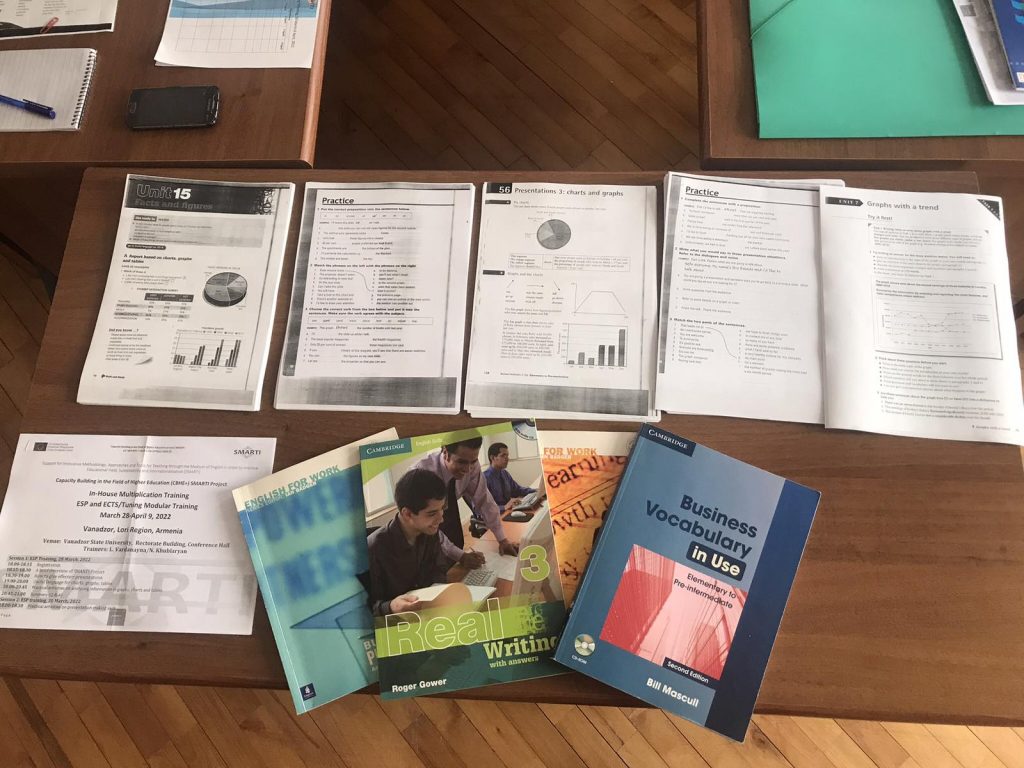
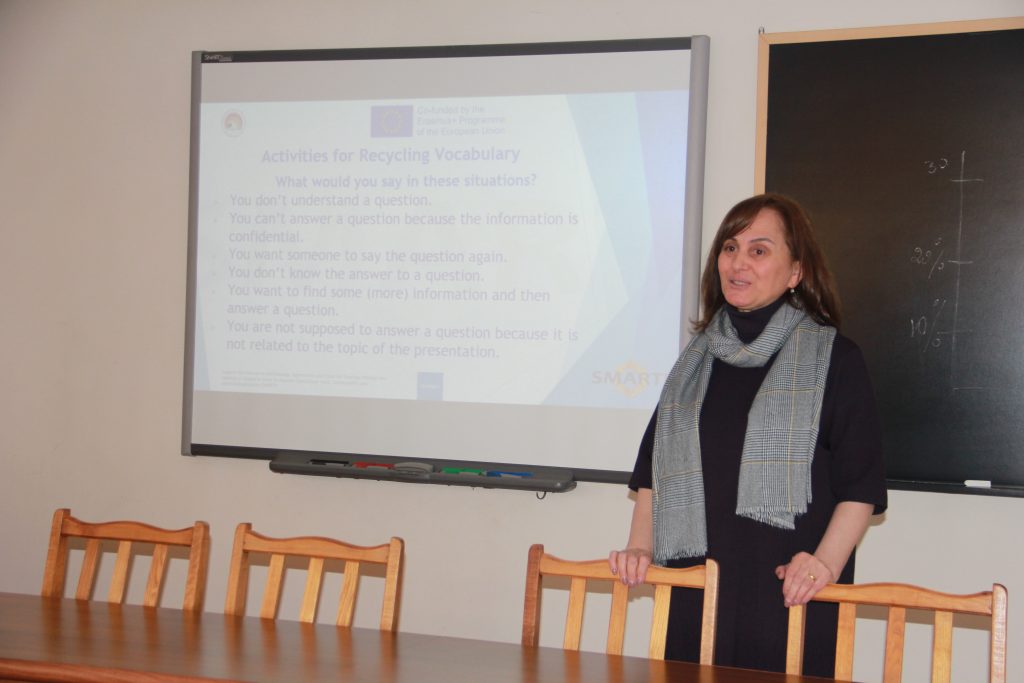
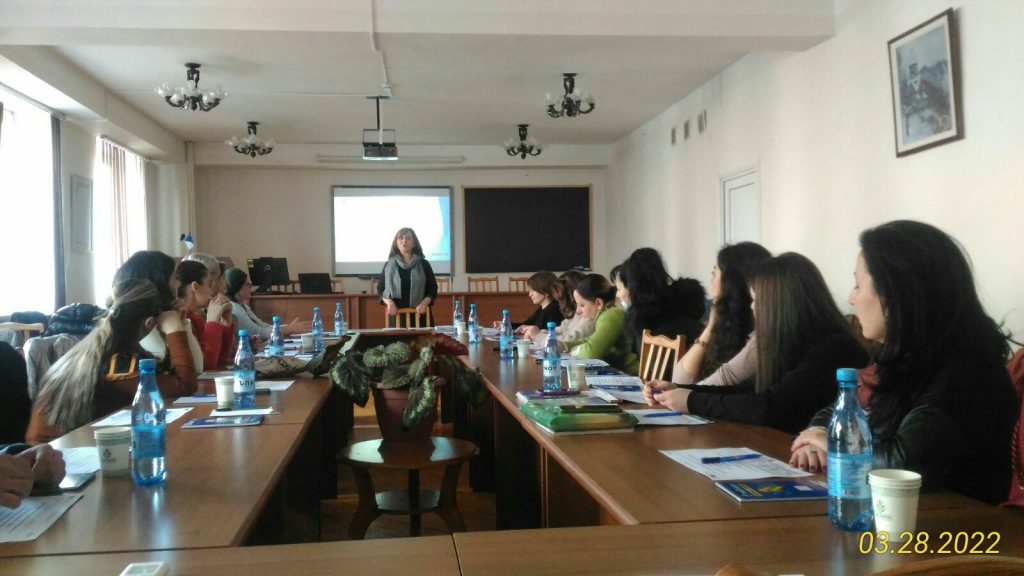
In-House ECTS/Modular Training at Vanadzor State University (3 April — 9 April)
The in-house multiplication training on ECTS conducted at Vanadzor State University on 3-9 April within the frame of Erasmus +‘‘Support for Innovative Methodology, Approaches and Tools for Teaching through the Medium of English in order to improve Educational Yield, Sustainability and Internationalization’’ (SMARTI) Project has been brought to the successful achievement of the main objectives of the three-day training sessions. The key topics were related to the primary approaches of Tuning Methodology, the Tuning Project, the key features of ECTS as well as Bloom’s revised Taxonomy analysed from the perspective of knowledge and cognitive process dimensions. The participants’ fruitful collaboration and active engagement in lively discussions during the workshops livened up “the academic atmosphere” and helped them considerably to overcome the language barriers which at first seemed rather unsurmountable especially to those with a fairly low English proficiency level. Surprisingly enough, even these participants managed to successfully deal with nearly all the tasks and activities assigned at the end of each session. The training was an excellent opportunity for the participants to share their knowledge and perception of the main priorities of the 21st century teaching, learning and assessment, more specifically, the means that are making the transition from lower order thinking skills (LOTS) to higher order thinking skills (HOTS) possible. We can definitely state that the training had its intended result due to the team’s high morale and “the spirit of compromise” which was easily perceived from the outset: first contributing to the training process and then benefiting from its outcomes. It is this spirit that made the whole training procedure smooth and enjoyable for everyone.

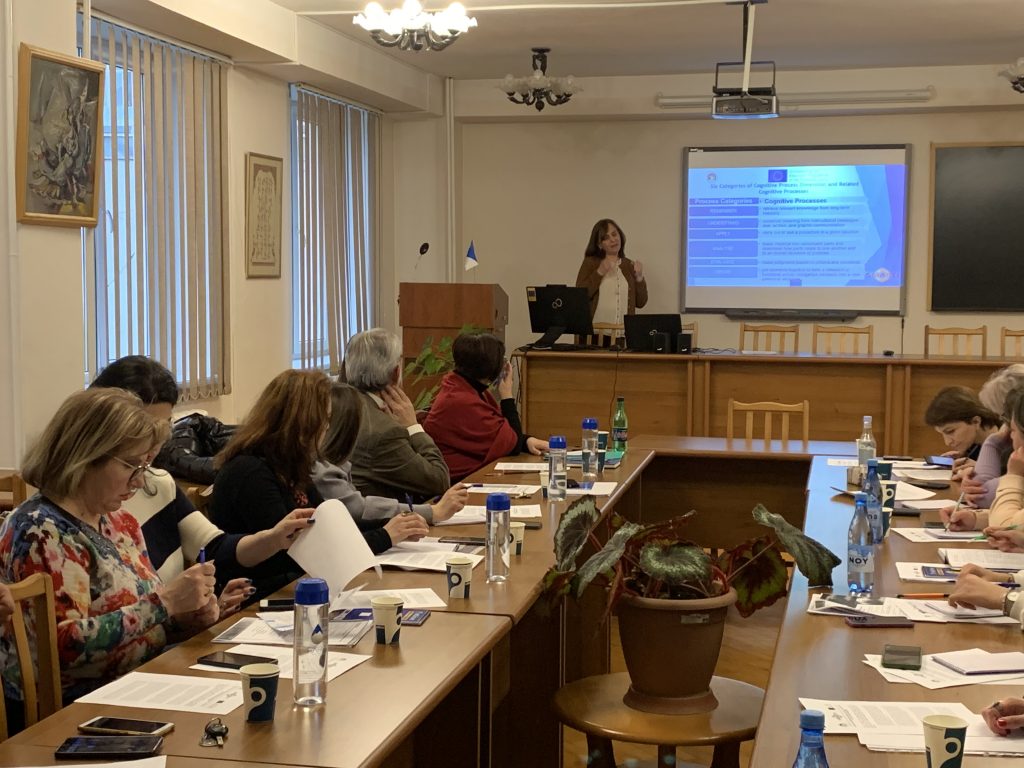

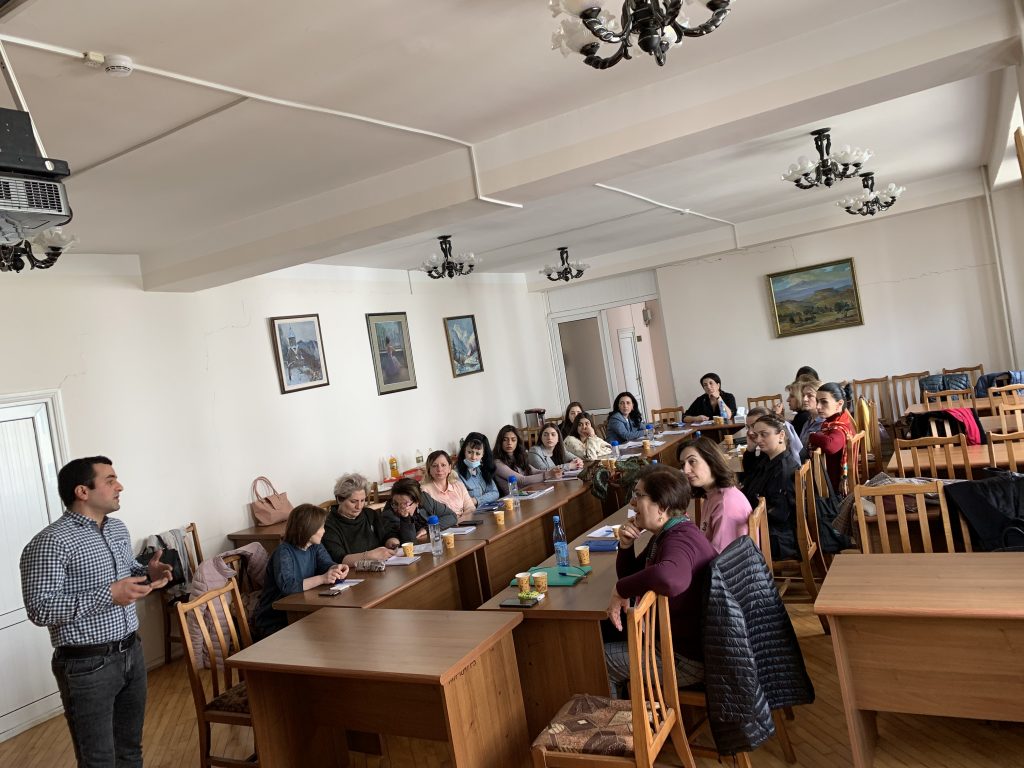
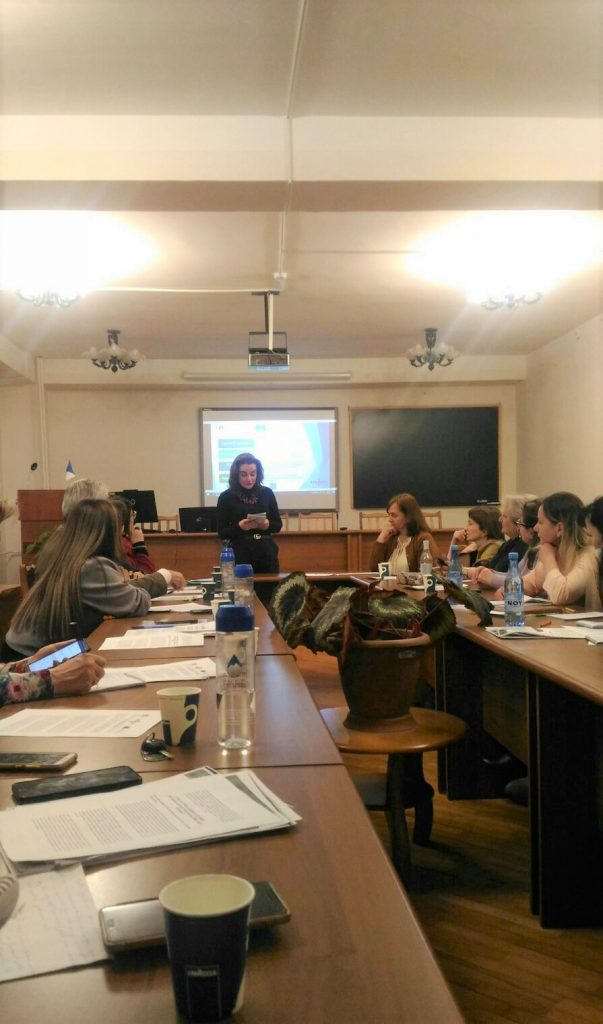
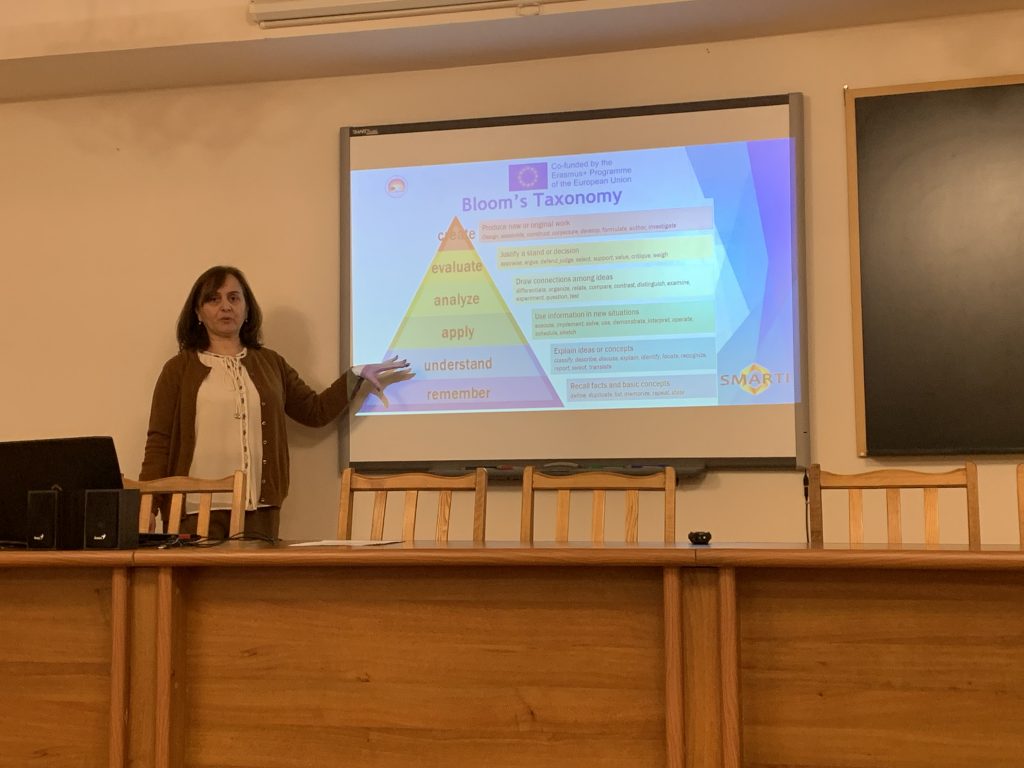
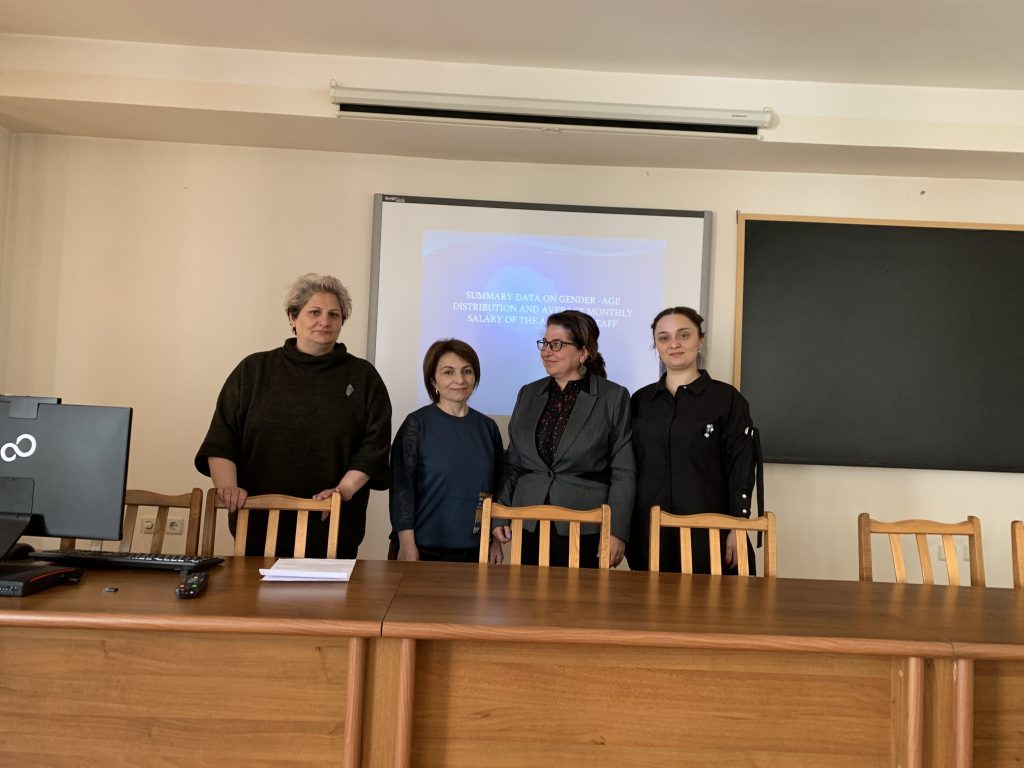
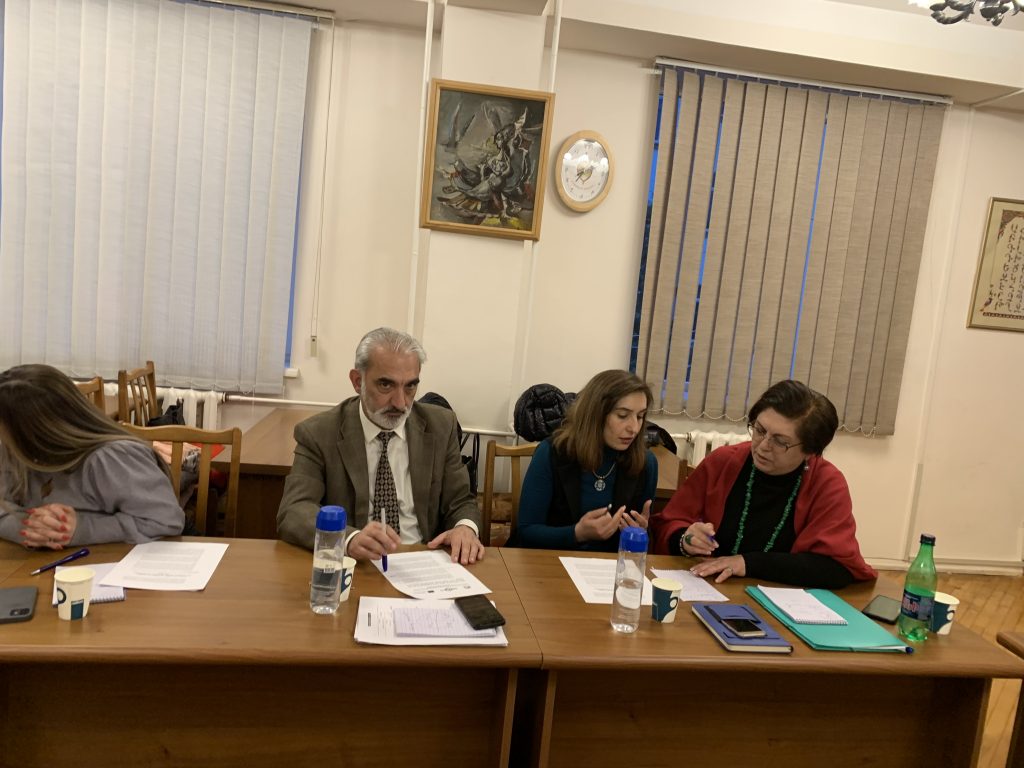
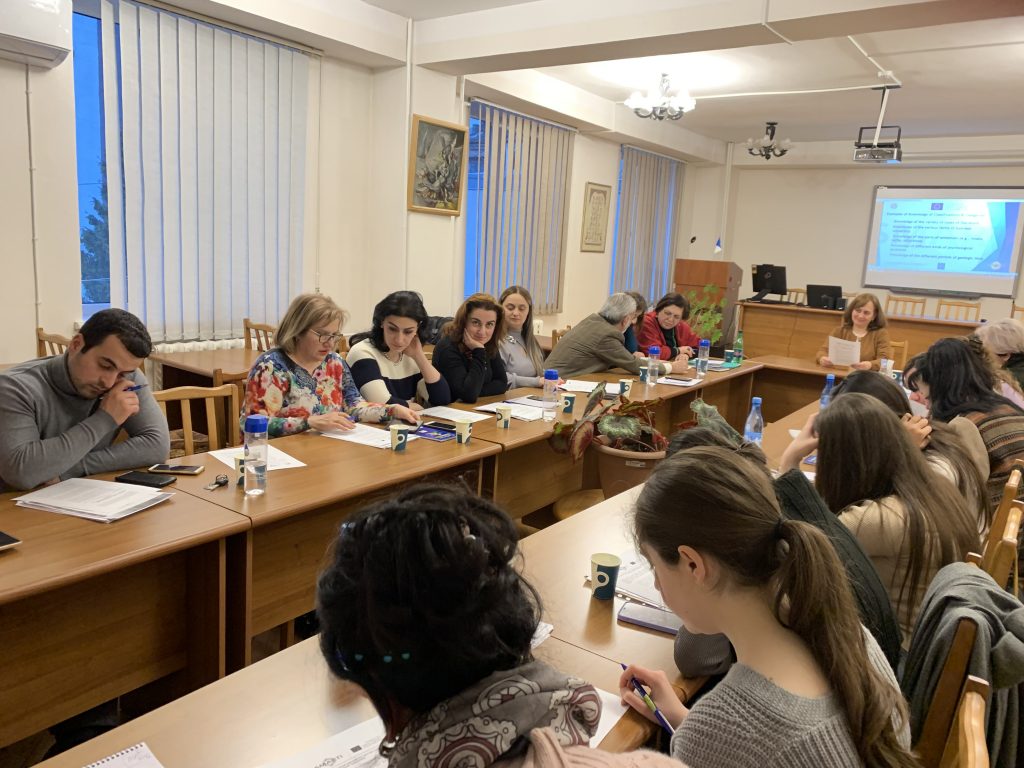
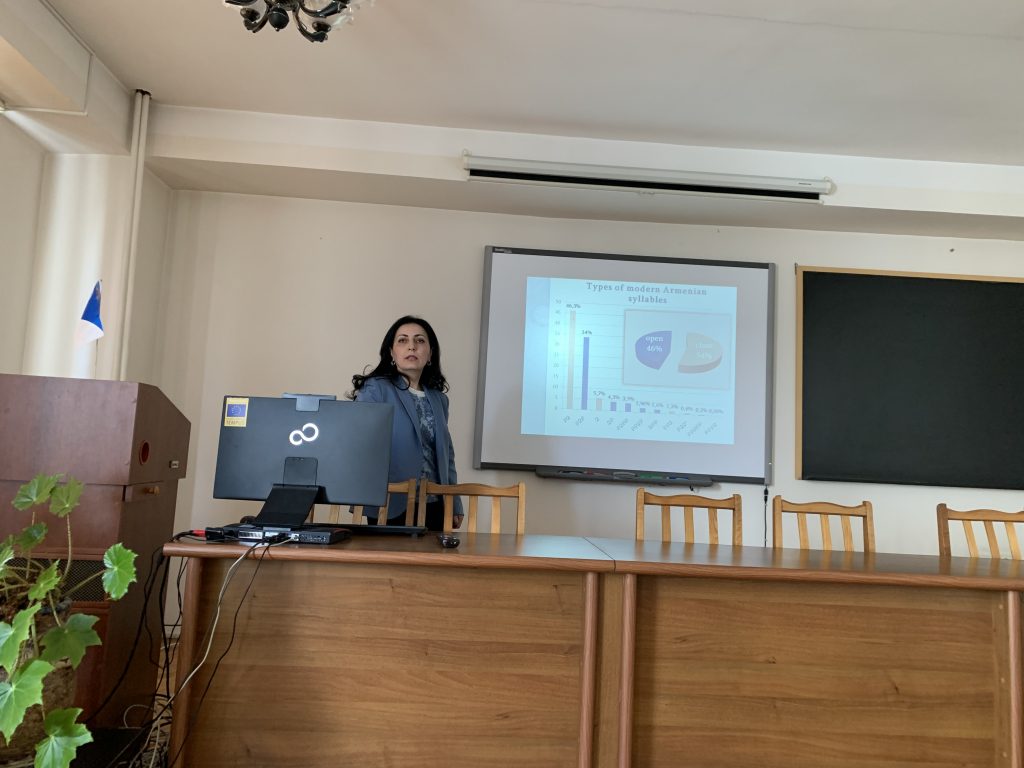
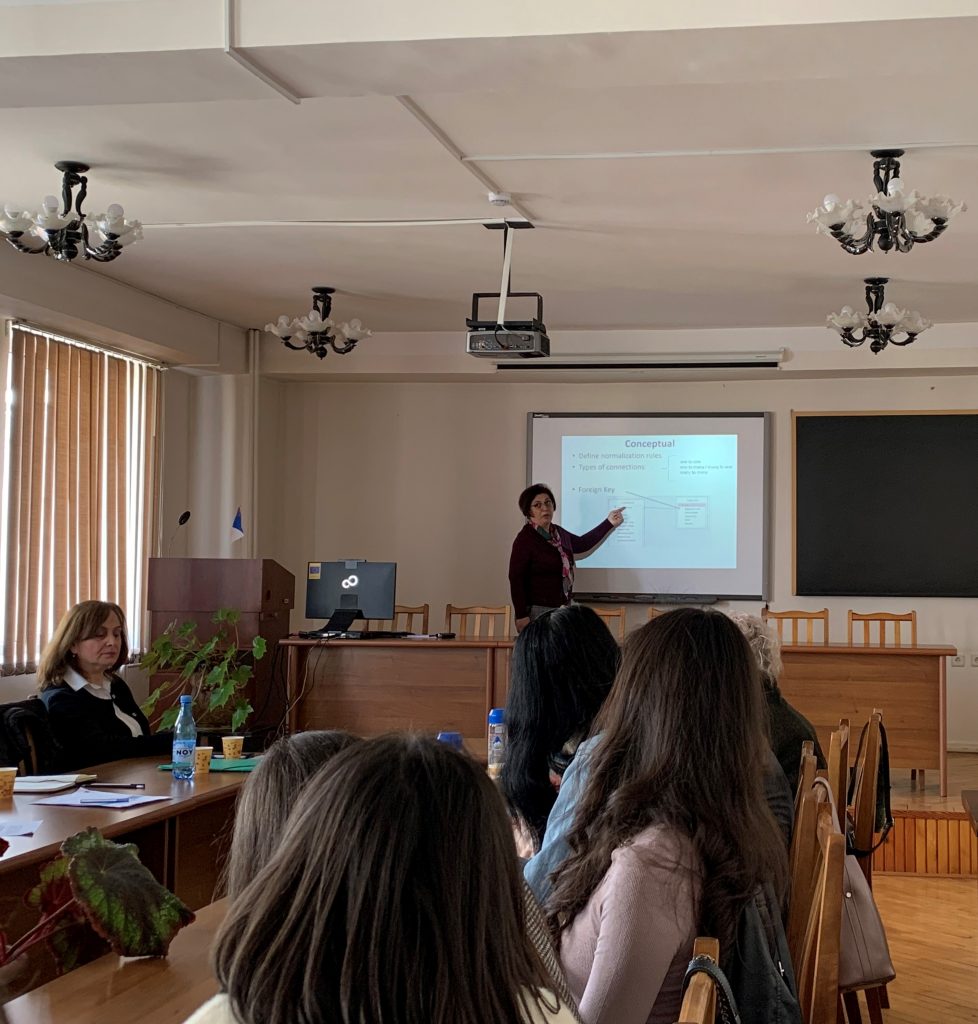
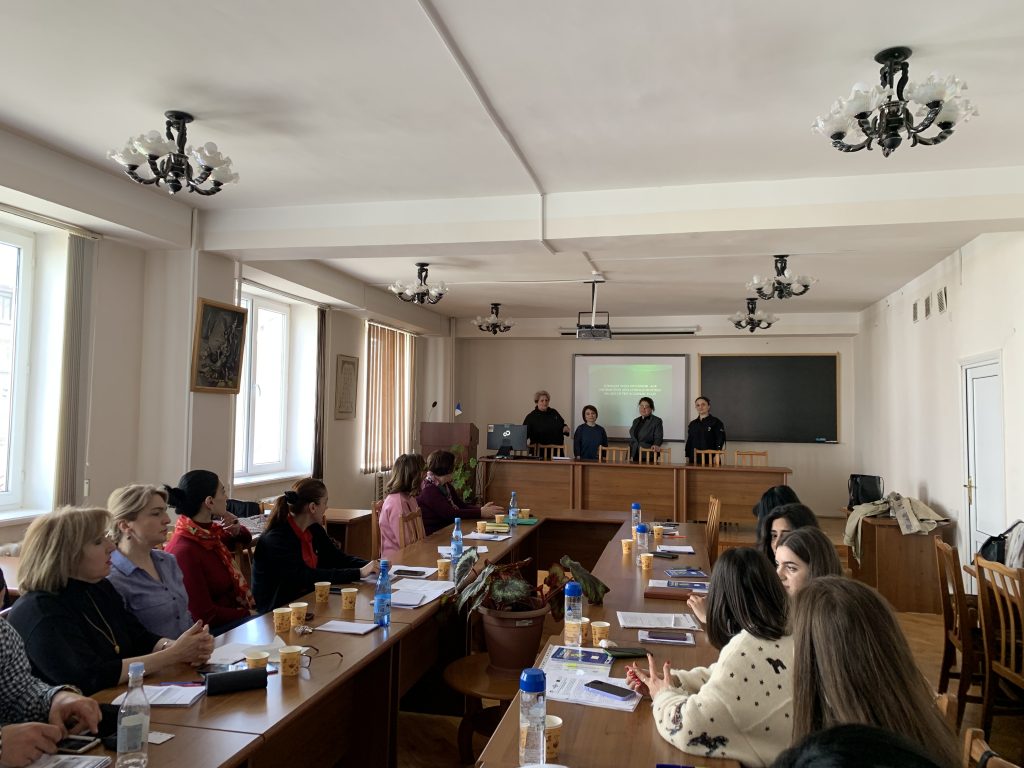
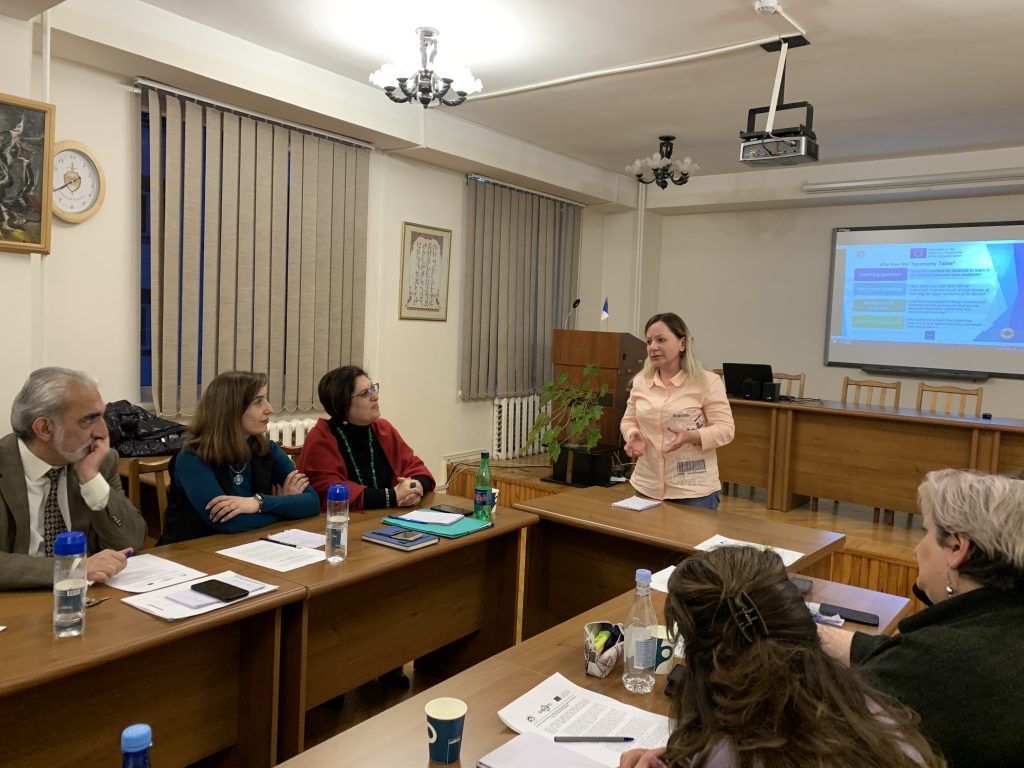
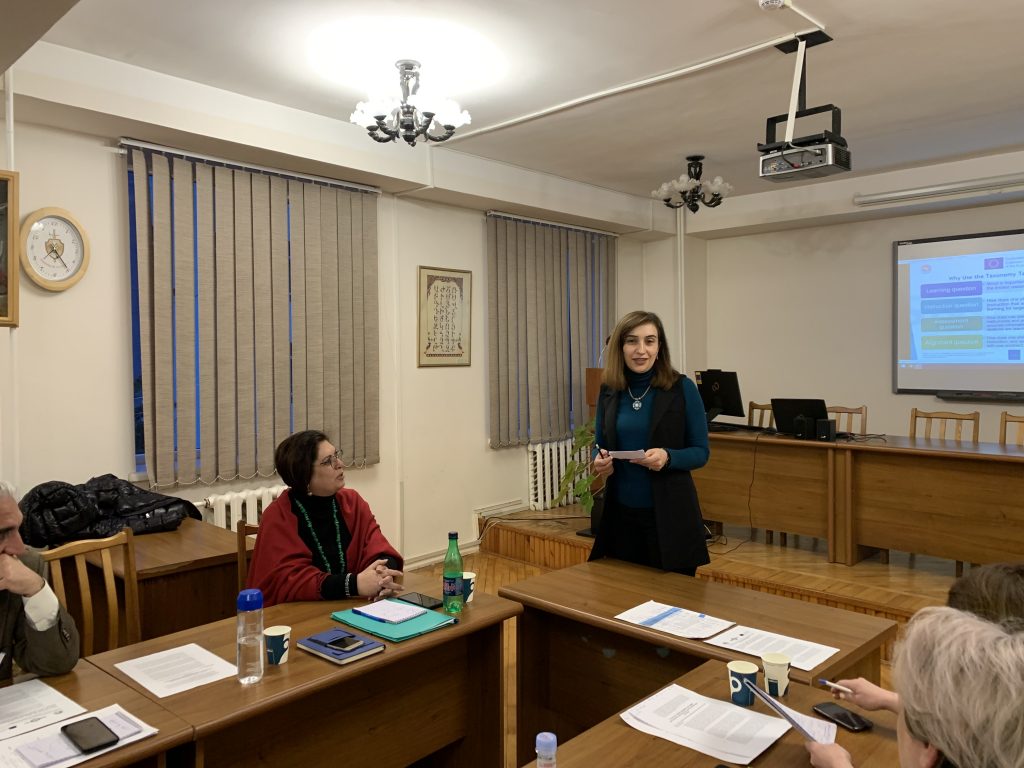
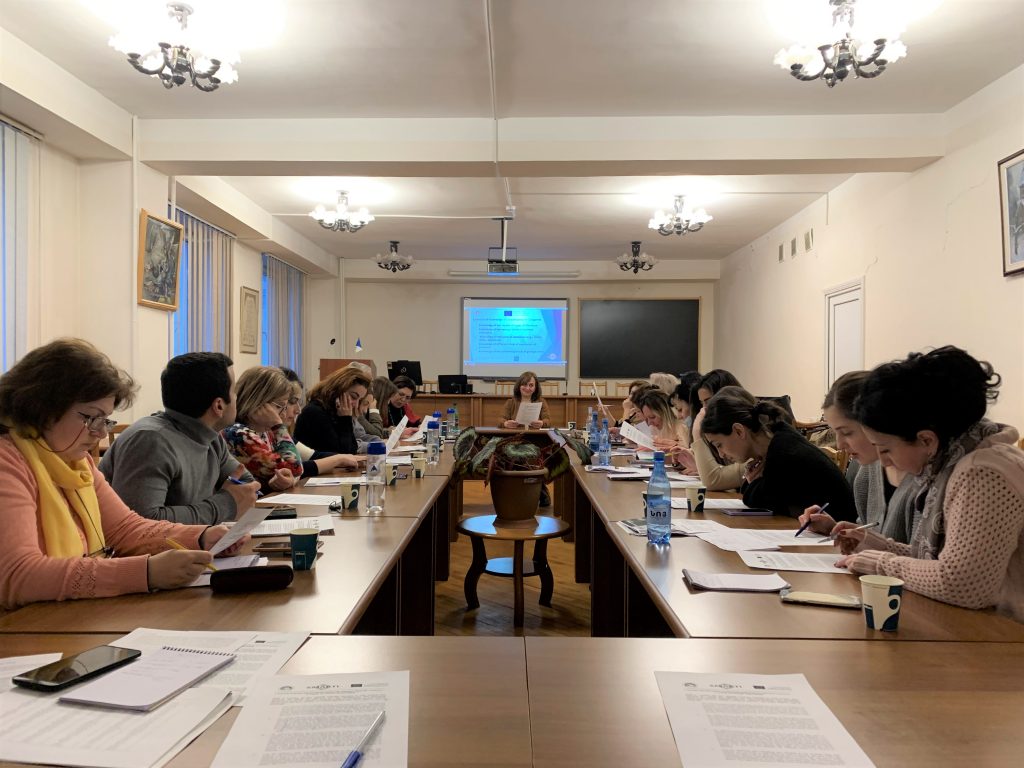
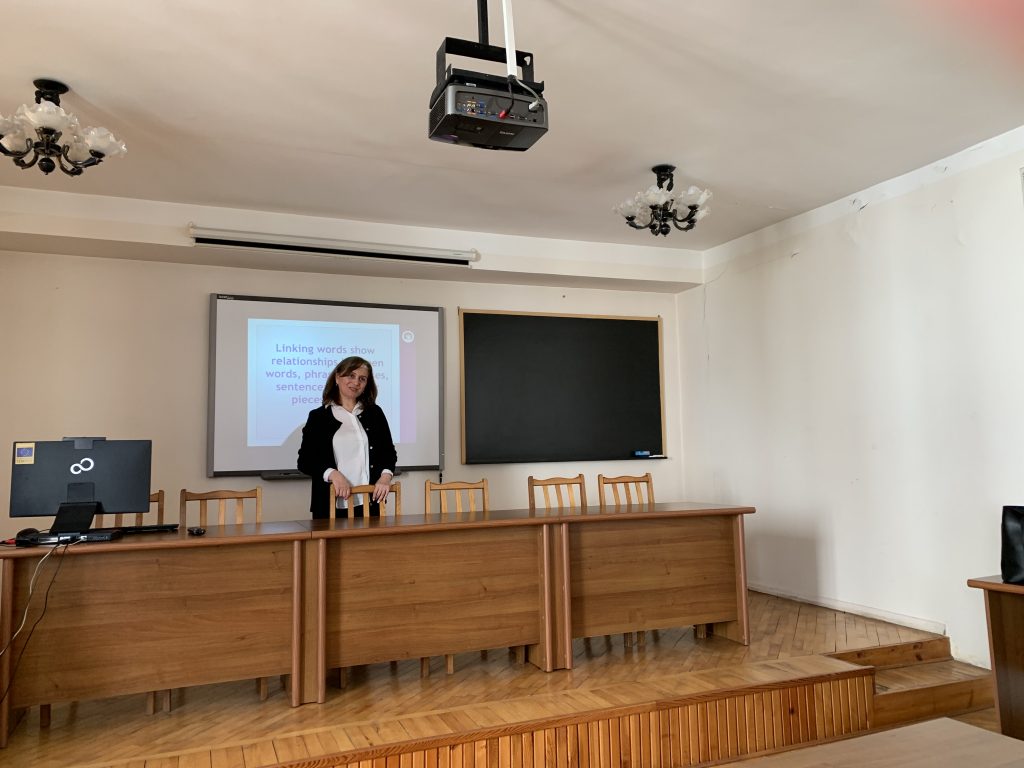
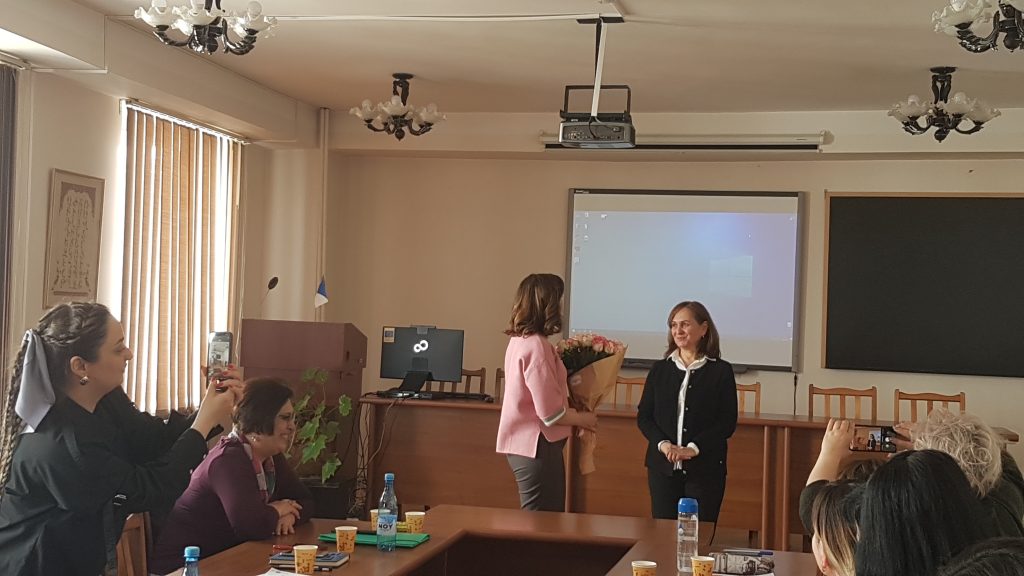
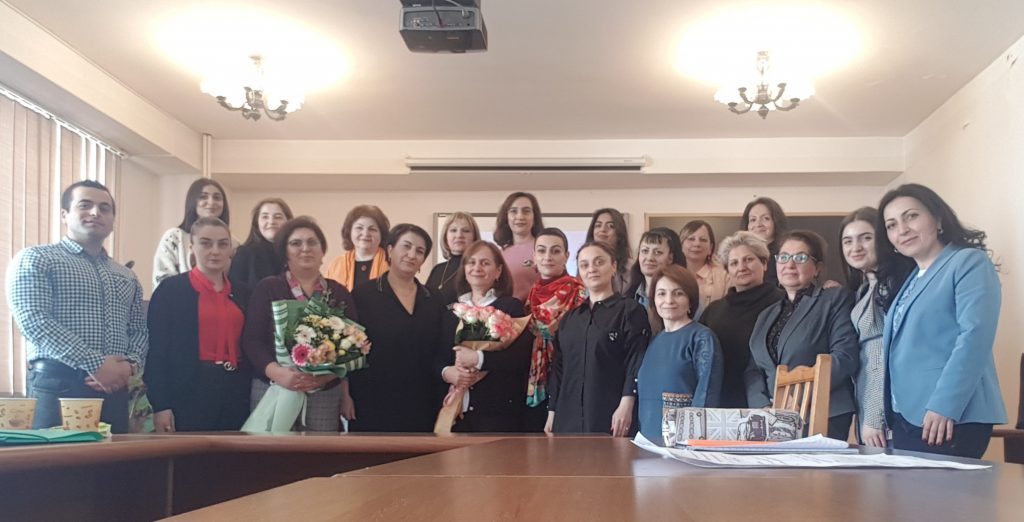
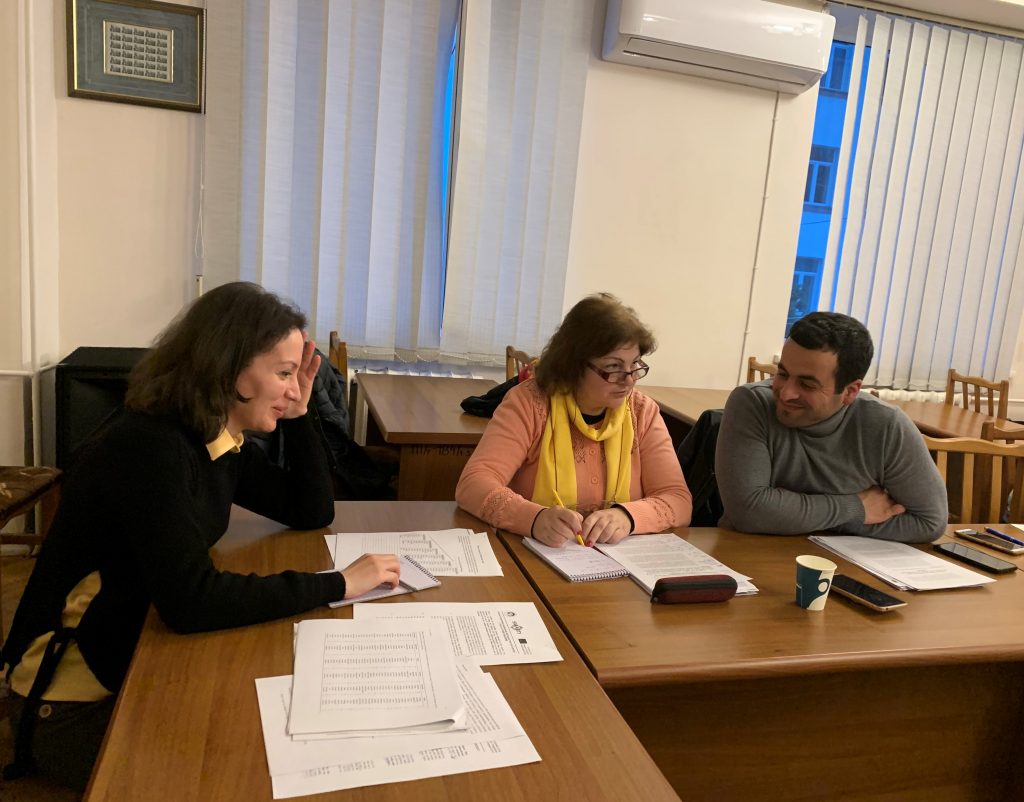
Certificate awarding ceremony of the ESP/ECTS Modular training at Vanadzor State University
On 22 April,2022, the closing event of the in-house training entitled “ESP and ECTS/Tuning Modular Training”organized from 28 March to 9 April, 2022 within the frame of the SMARTI Project was held at Vanadzor State University.
The training sessions were attended by 22 participants (VSU academic and administrative staff, as well as students).
During the awarding ceremony the VSU Rector, Dr. Prof. RustamSaakyan, and the SMARTI Project Local Coordinator, Dr.LusikVardanyan, welcomed the participants emphasizing the fact that a team of academic staff willing to teach modules in a foreign languagehas already been formed.They expressed words of appreciation to the participants for creating awelcoming and productive atmosphere during the training. The Rector, also being one of the participants in the training, thanked Lusik Vardanyan for her great efforts and patience in organizing the productive course.
- Vardanyan gladly noted that despite the fact that the participants’ level of English was different, it did not prevent them from having a lively and effective collaboration during the lessons, since both the lecturers and the students were enthusiastically involved in all the activities, efficiently completing not only in-class but also home assignments.
The participants of the courseexpressed their gratitude to the organizers, in particular, Lusik Vardanyan, for her high professionalism, great dedication, and the unique course design, which resulted in acquiring not only English skills, but also the knowledge related to a wide range of academic topics.
The successful completion of the training greatly motivated and encouraged the participants to deepen their knowledge and skills gained in the respective field.
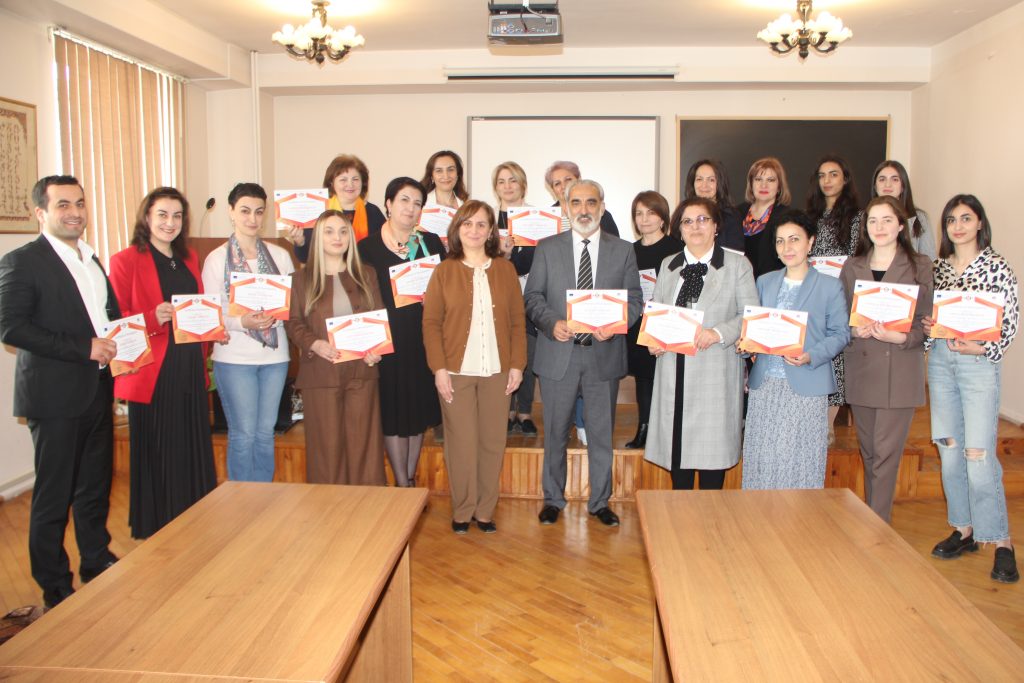
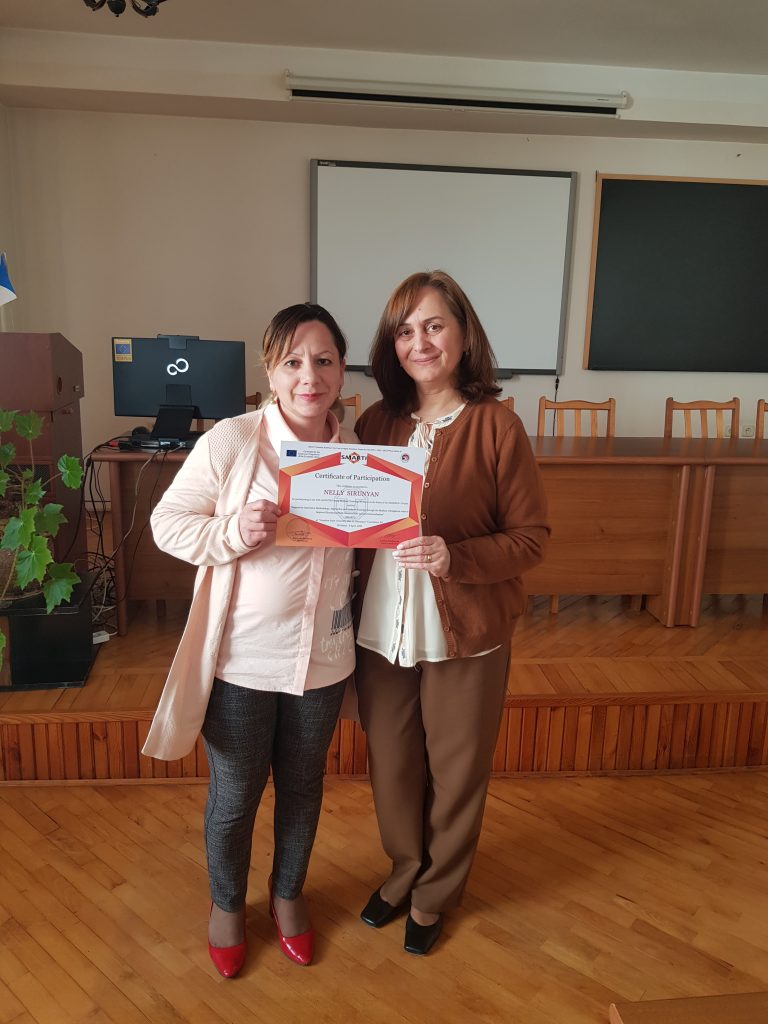
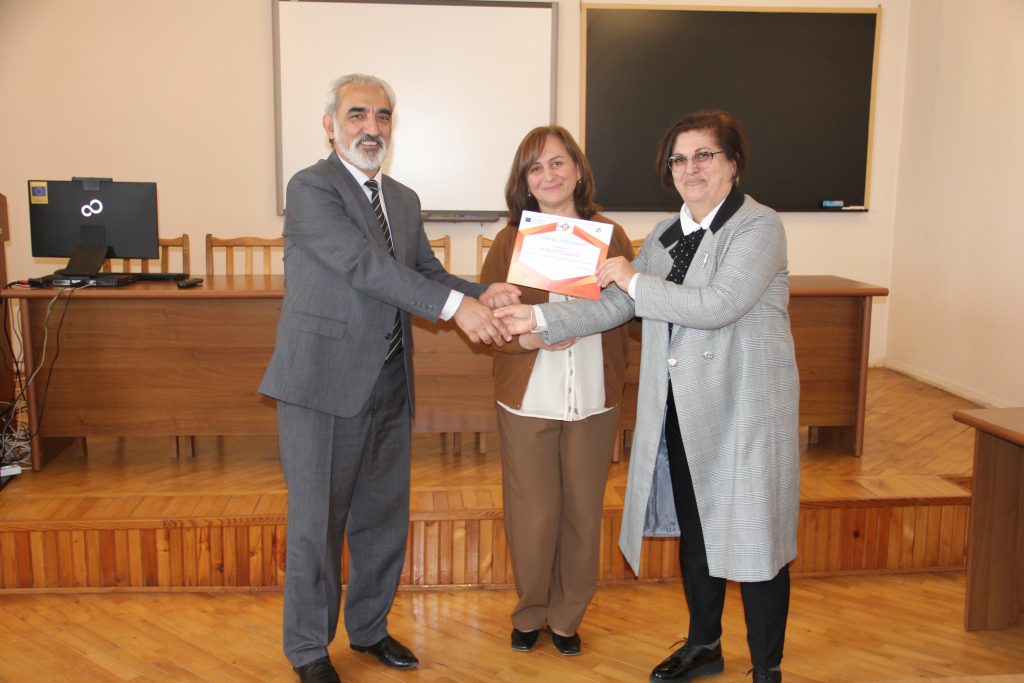
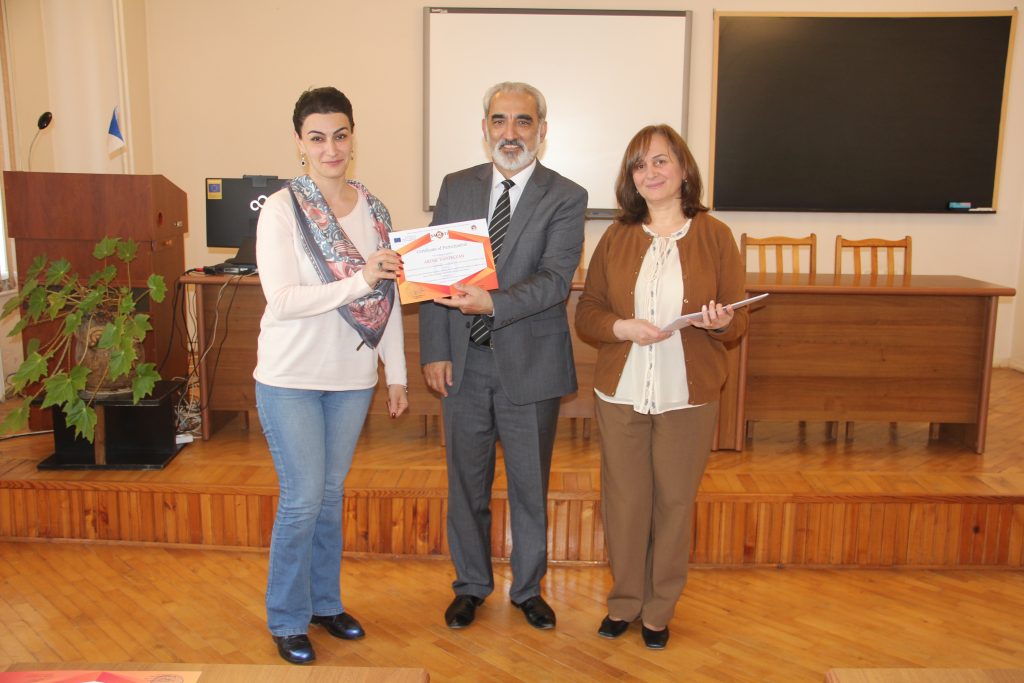
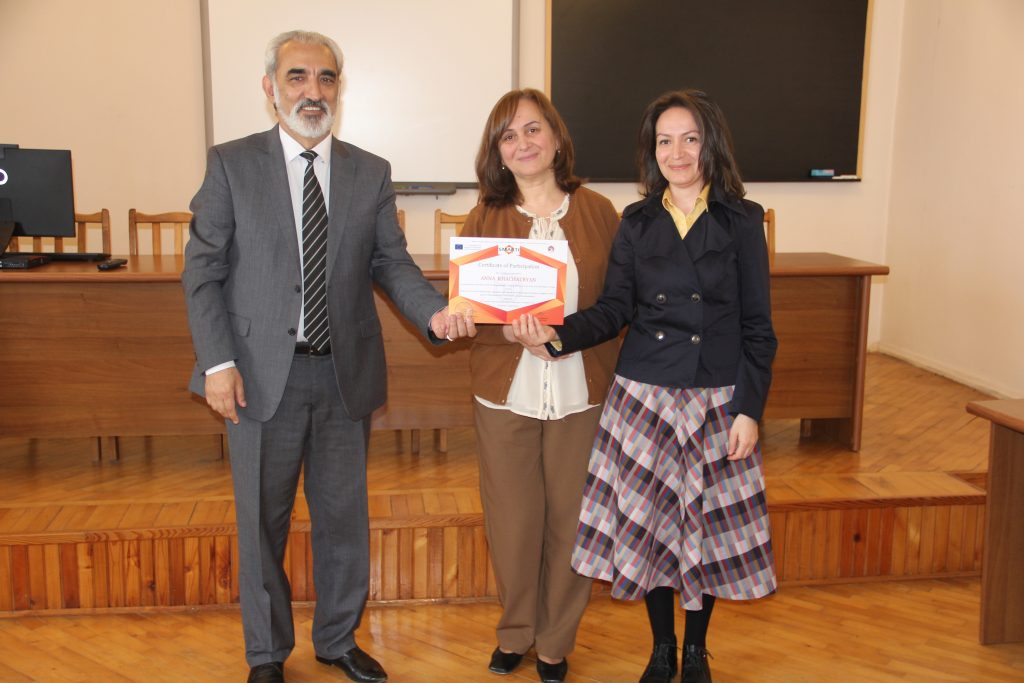
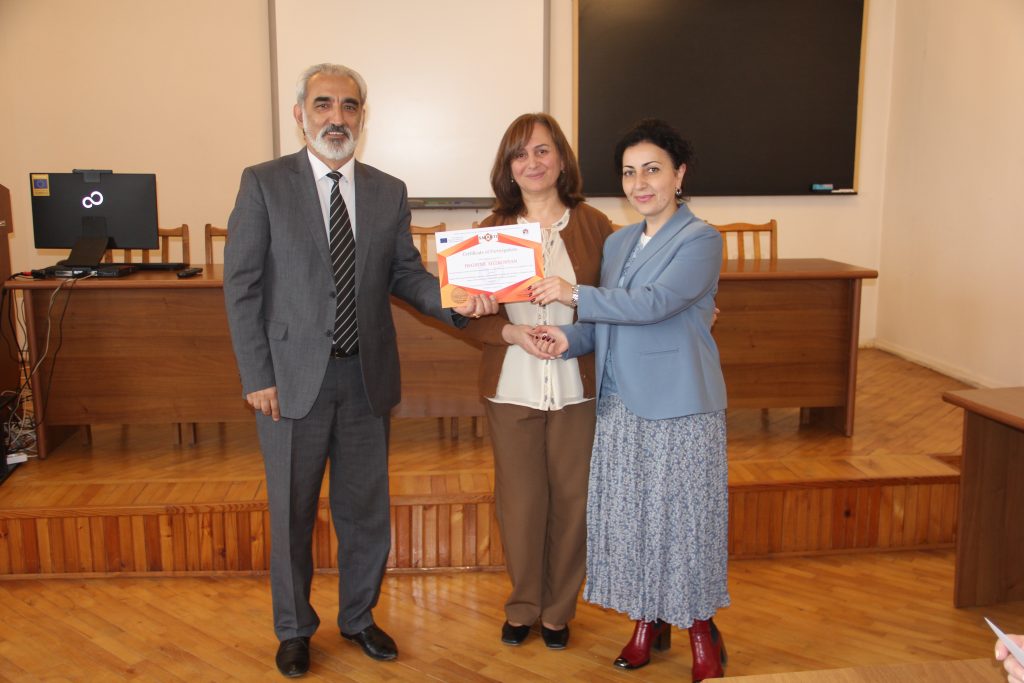
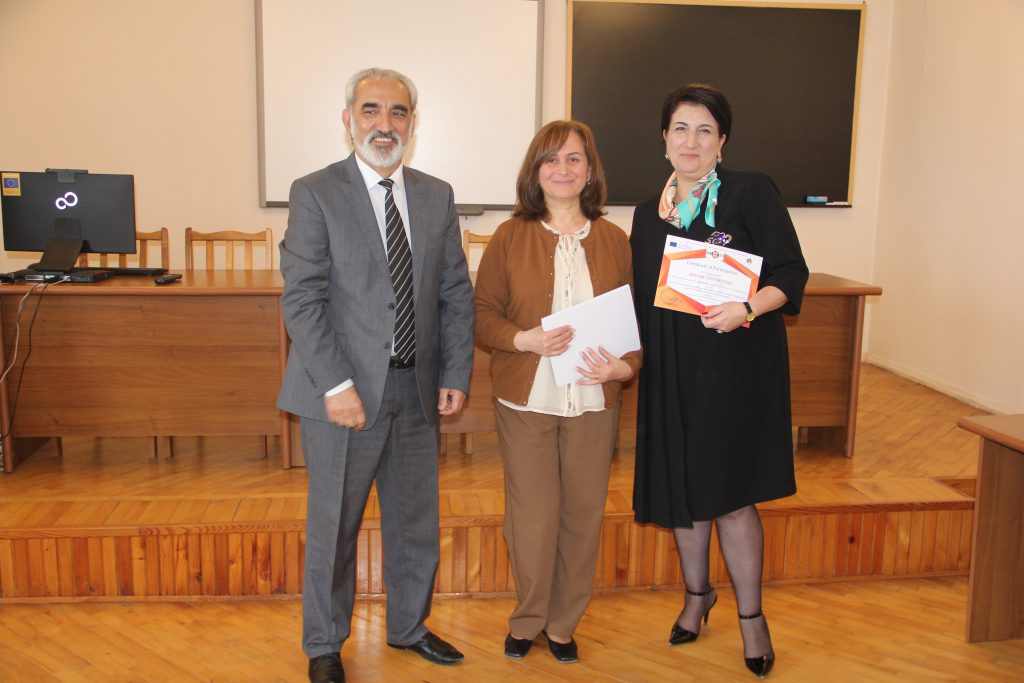
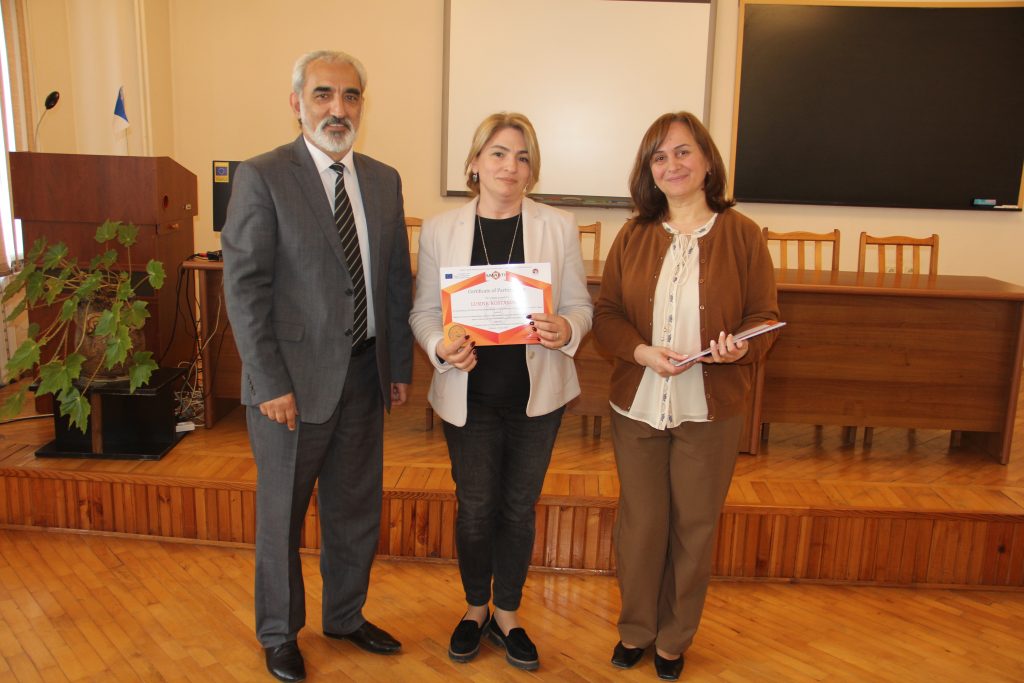
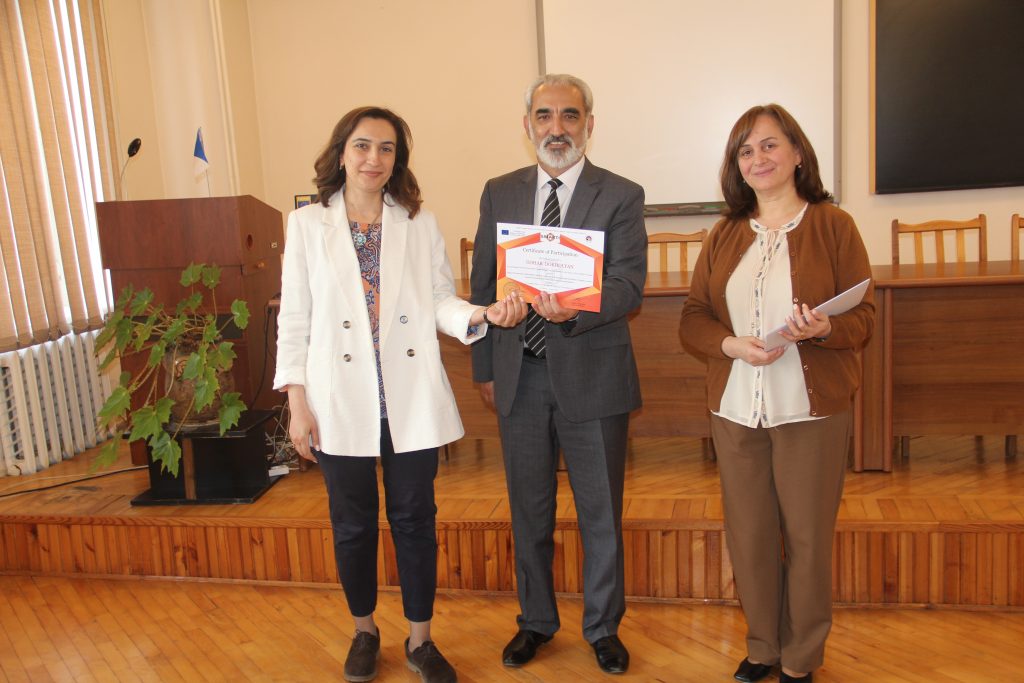
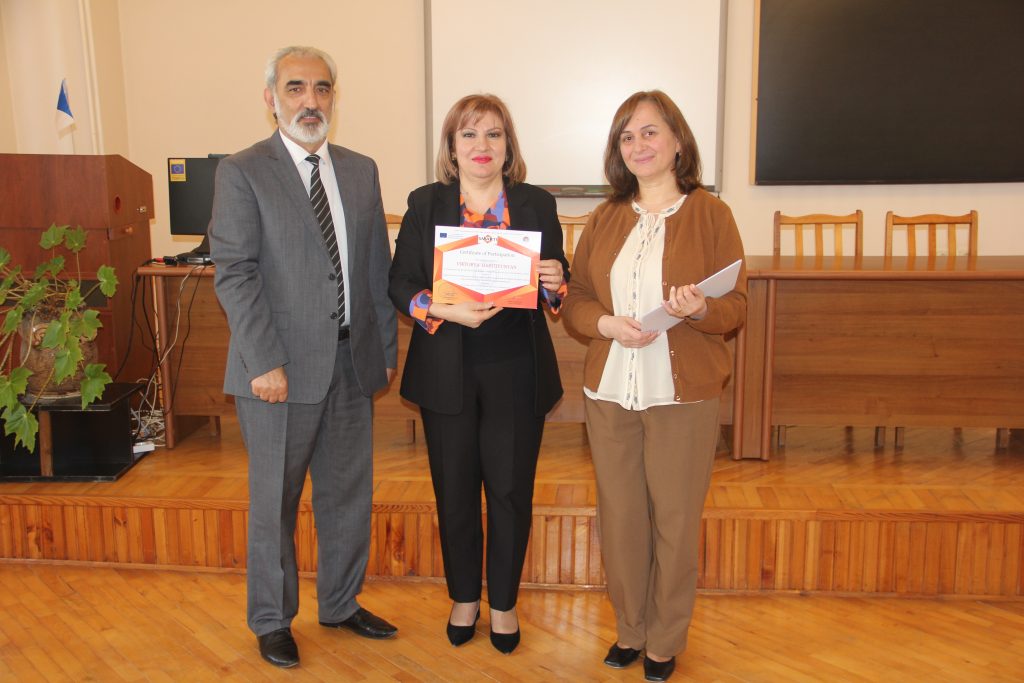
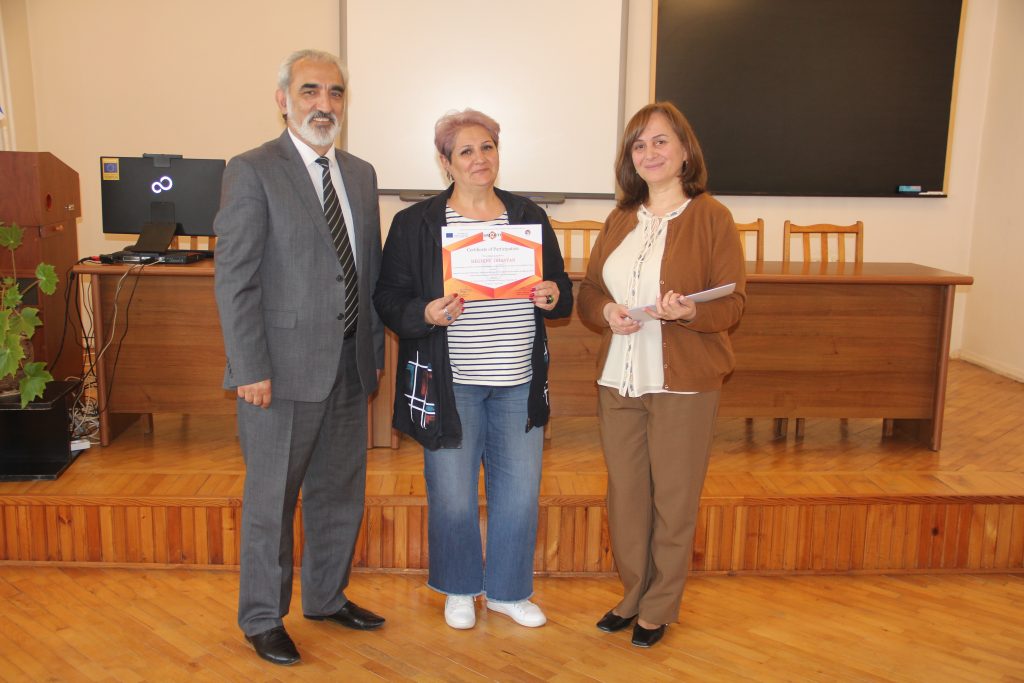
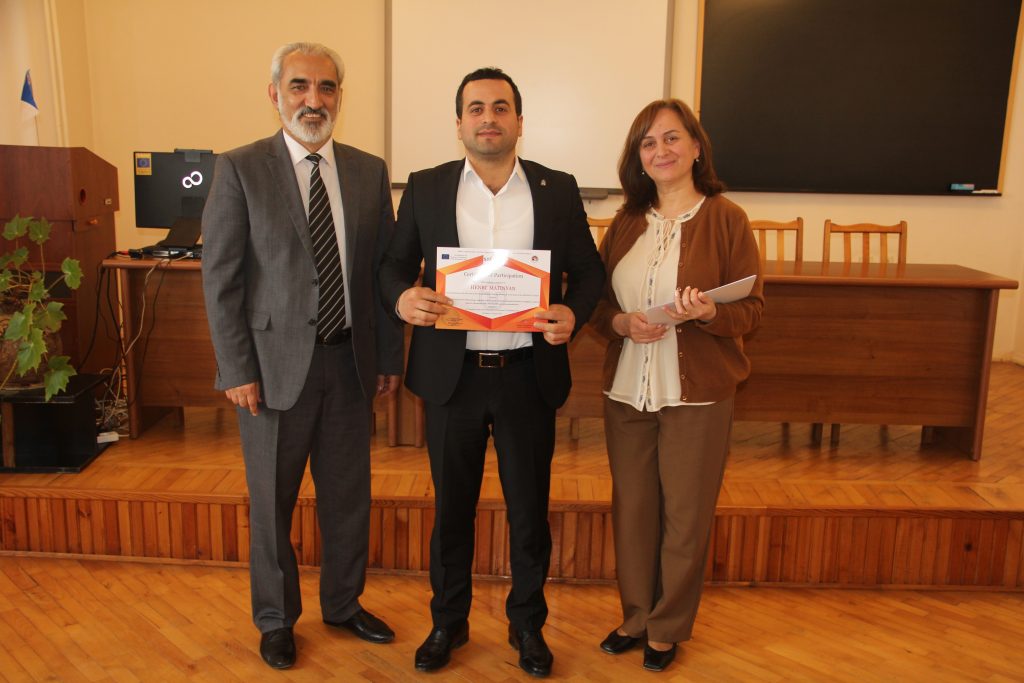
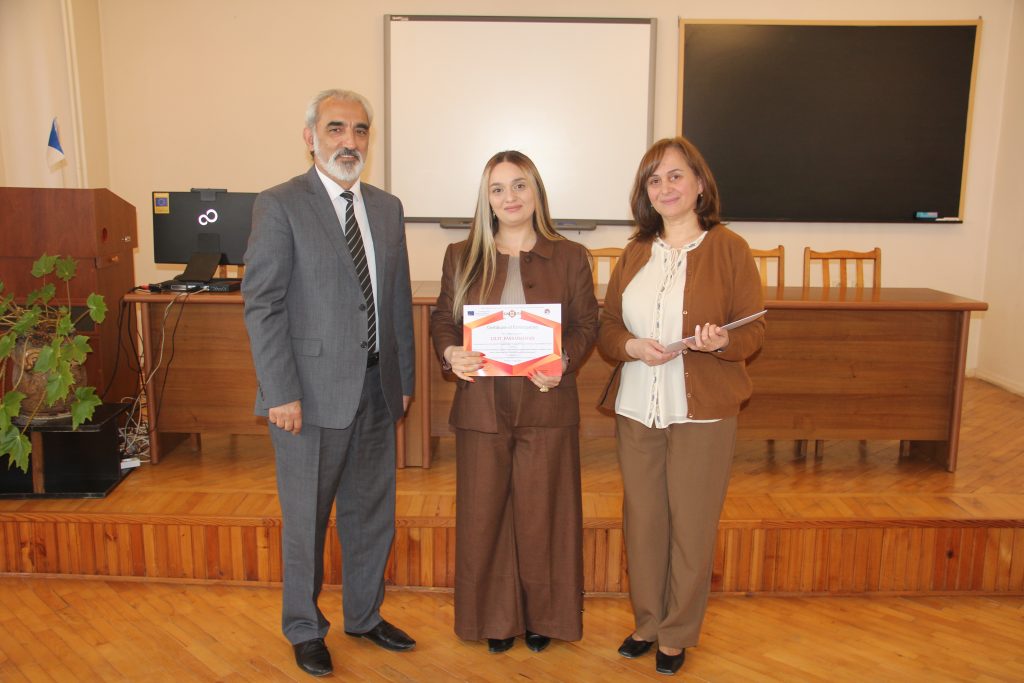
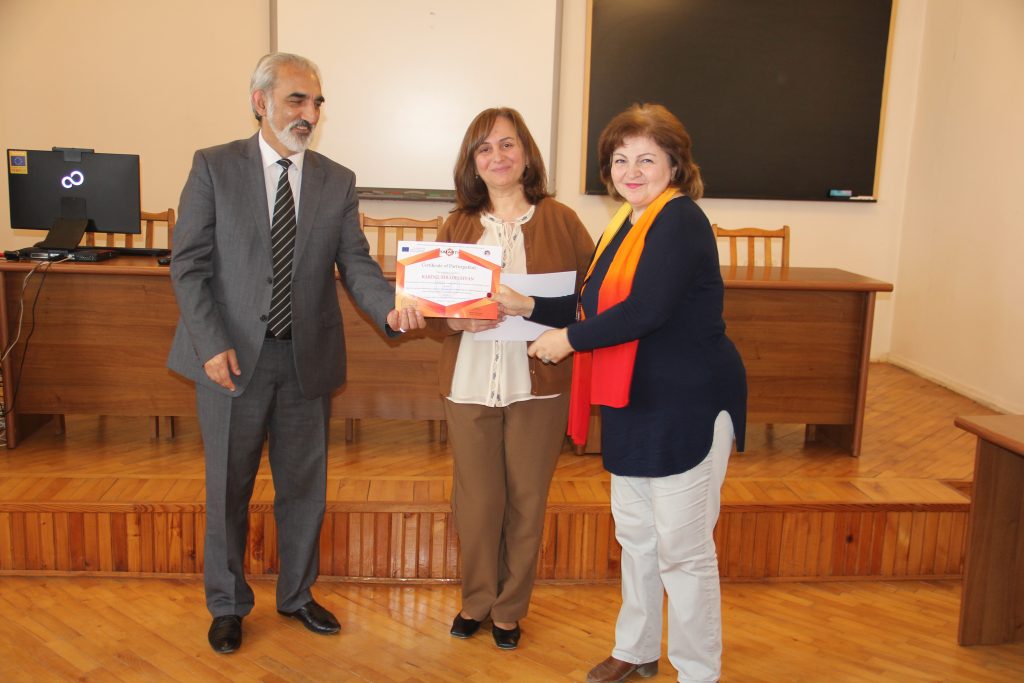
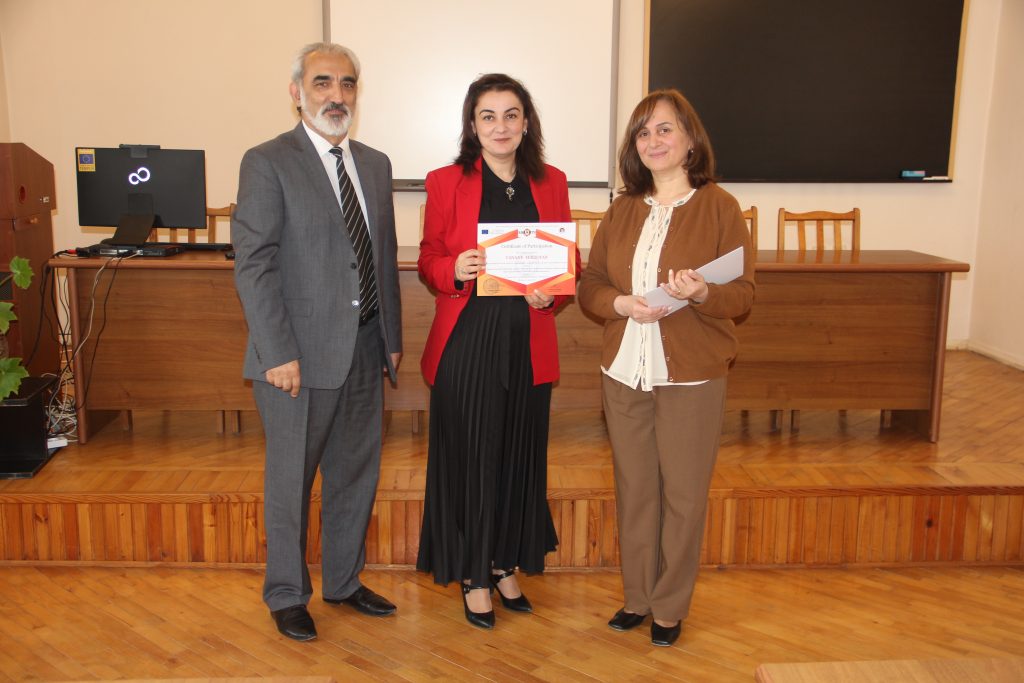
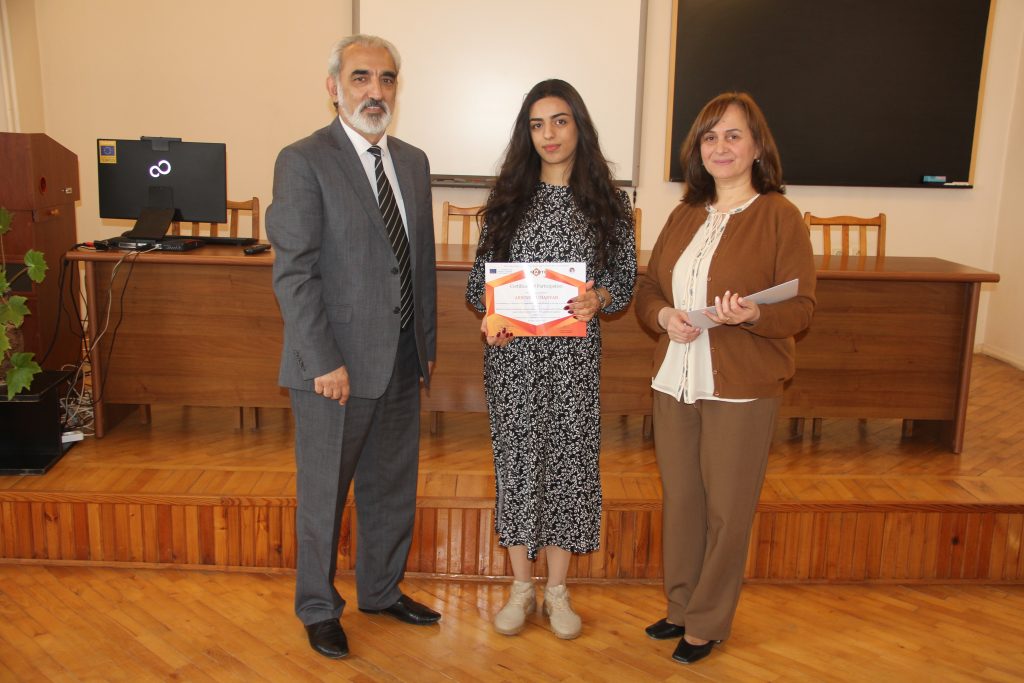
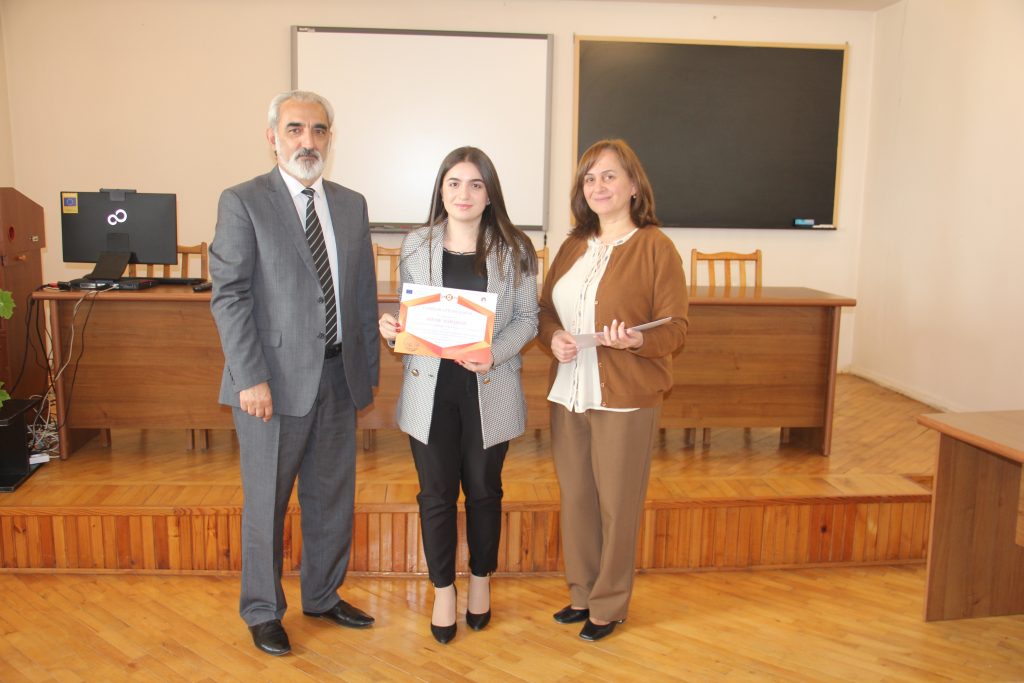
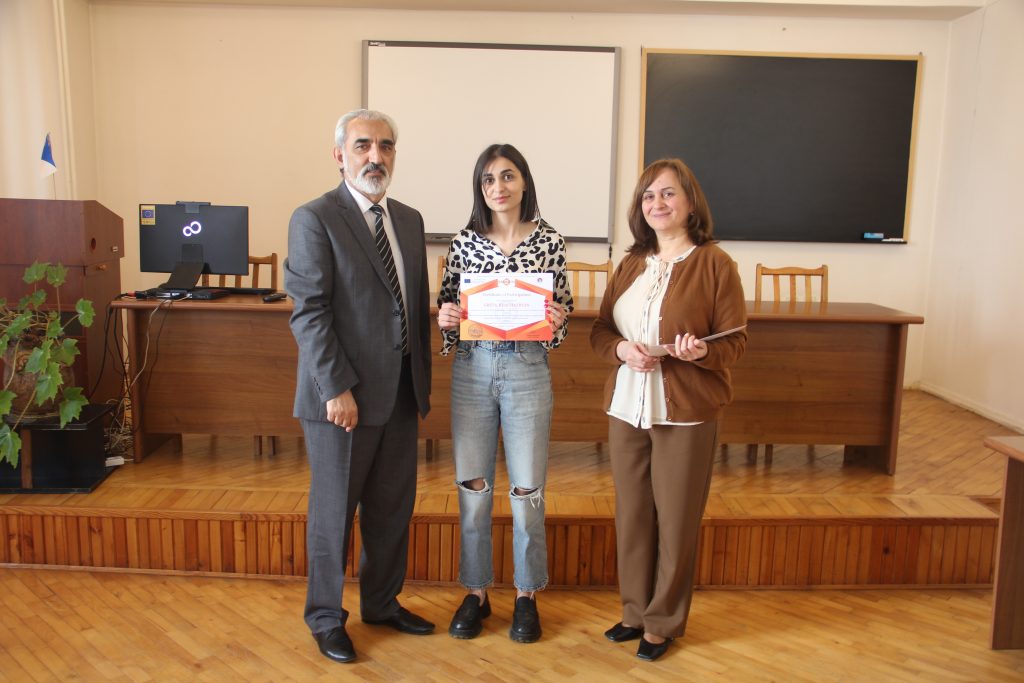
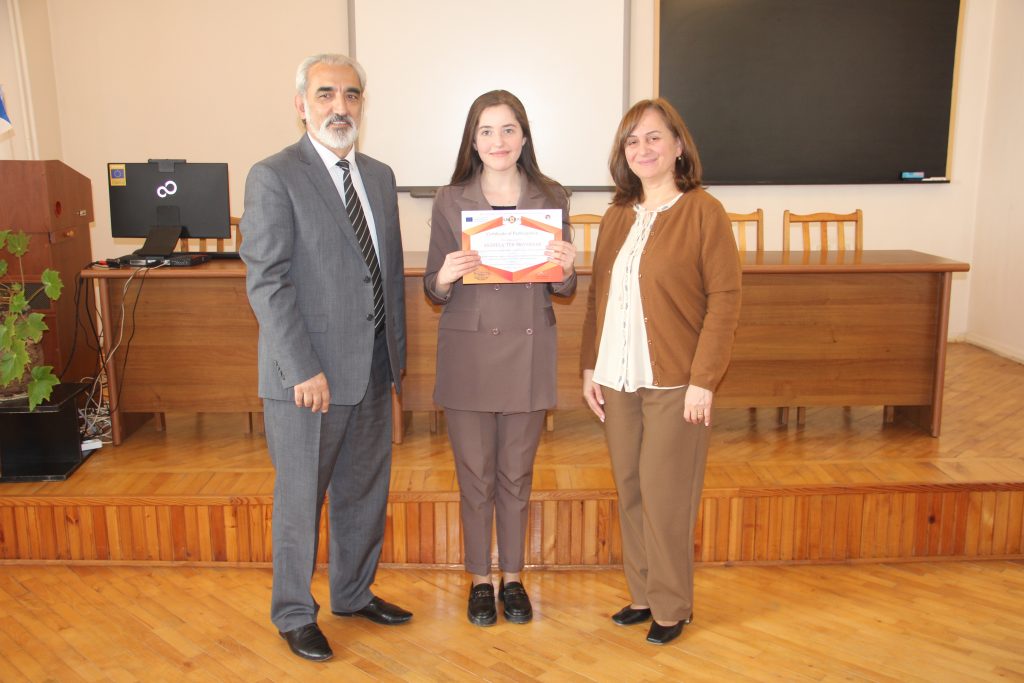
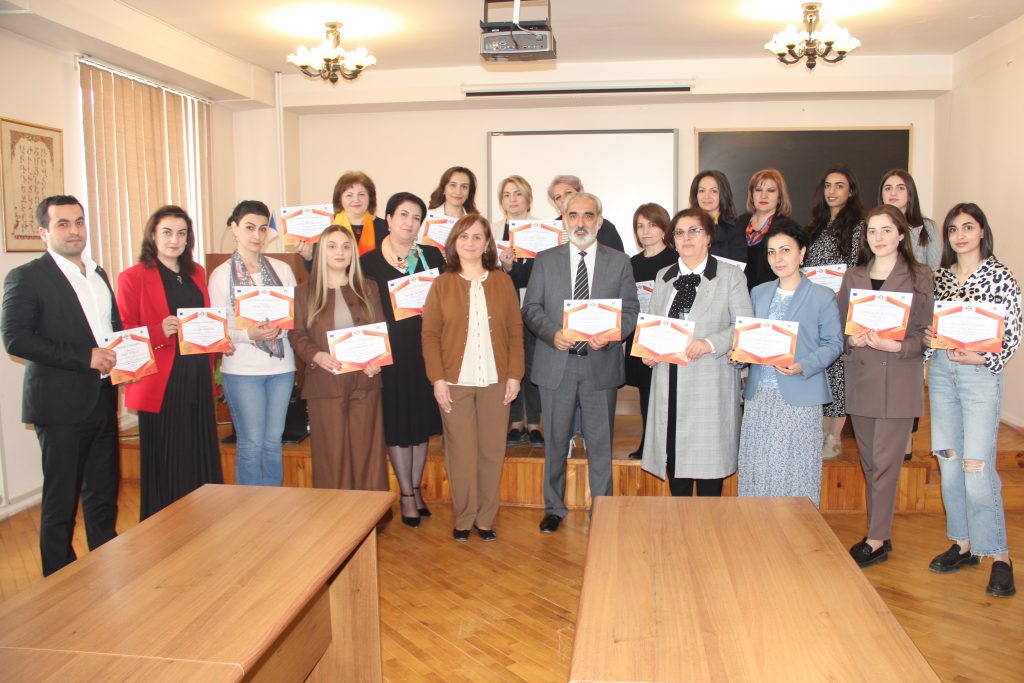
Training on «Design on EMI 10 Modules and Lesson Plans» at Liverpool John Moores University, UK
On April 3-12, 2023, in the frame of Erasmus + «Support for Innovative Methodology, Approaches and Tools for Teaching through the Medium of English in order to improve Educational Yield, Sustainability and Internationalization» (SMARTI) Project a 10-day training was held at Liverpool John Moores University (LJMU), UK. The training sessions were devoted to the design of the EMI 10 modules and lesson plans to enhance EMI teaching, as well as innovative teaching methodologies and student-centred learning strategies. At the beginning of the meeting, welcoming speeches were made by Adam Shore, Professor from the host university and Director of Liverpool Business School, and by Gerard Cullen, SMARTI Project Manager and representative of the Project grant-holder, Dresden University of Technology (TUD). Vanadzor State University (VSU) was presented by LusikVardanyan, local project coordinator, Associate Professor of the Chair of Foreign Languages and Literature, GayaneKanaryan, Assistant Professor of the Chair of Mathematics and Informatics, and Arine Danielyan, Assistant Professor of the Chair of Foreign Languages and Literature.
The training sessions were conducted by EU trainers Gerard Cullen, and Sven Riddell from Dresden University of Technology; Professors Maureen Royce, Ryan Wynn-Williams, Casey Beaumont, and Amanda Mayson from Liverpool John Moores University; as well as Marina Platonova and Tatiana Smirnova from Riga Technical University. The training sessions were replete with EMI-module-related theoretical materials and practical activities that were accompanied by lively group discussions. In the frame of the Project, each PC HEI is expected to design two modules on the basis of the materials provided by the EU trainers. VSU is to design and implement two modules (Module 1:Communicative Approach (student-centred) and Blended/ICT/E-Learning strategies that are as opposed to the more common traditional teaching approaches used in all faculties and Module 7:EMI Student Assessment Strategies (formal and alternative assessment).
On the last day of the training, each university presented the preliminary versions of the two pre-selected modules and lesson plans which were considered by the EU trainers. The latter expressed their remarks and advice regarding the structure and content of the presented modules and lesson plans.
During the period of September-November, 2023, the implementation of piloting courses and training sessions is visualized for the HEI academic staff. The training sessions will be monitored by EU experts. On the whole, two piloting courses are expected to be completed by the end of the project.
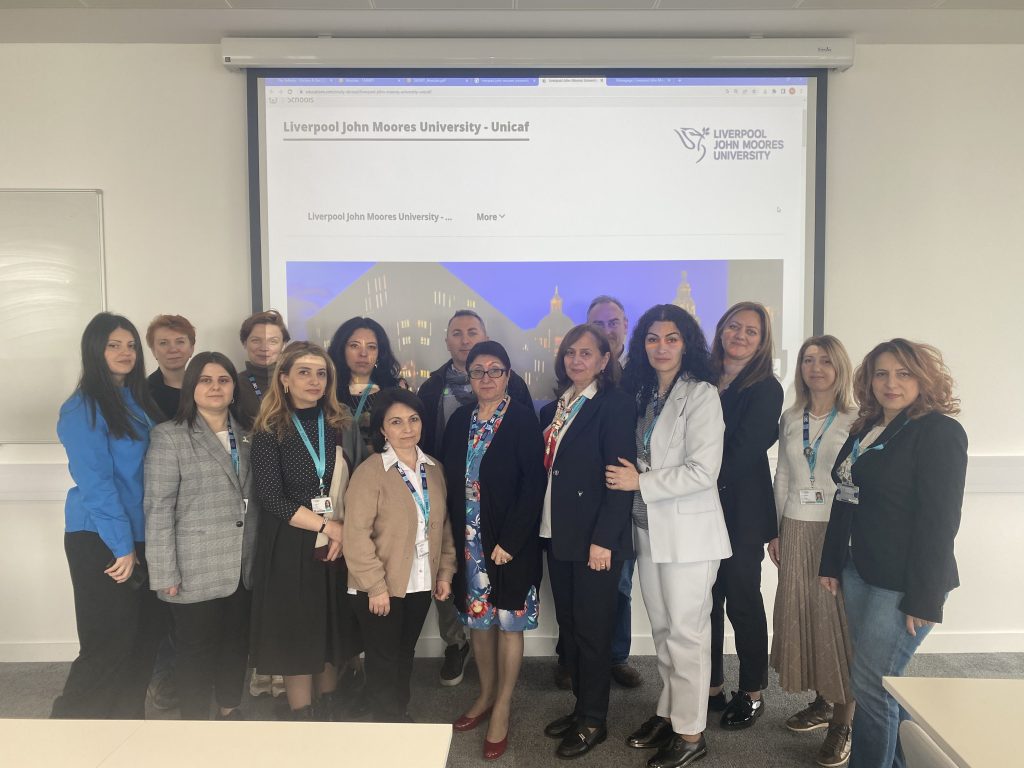
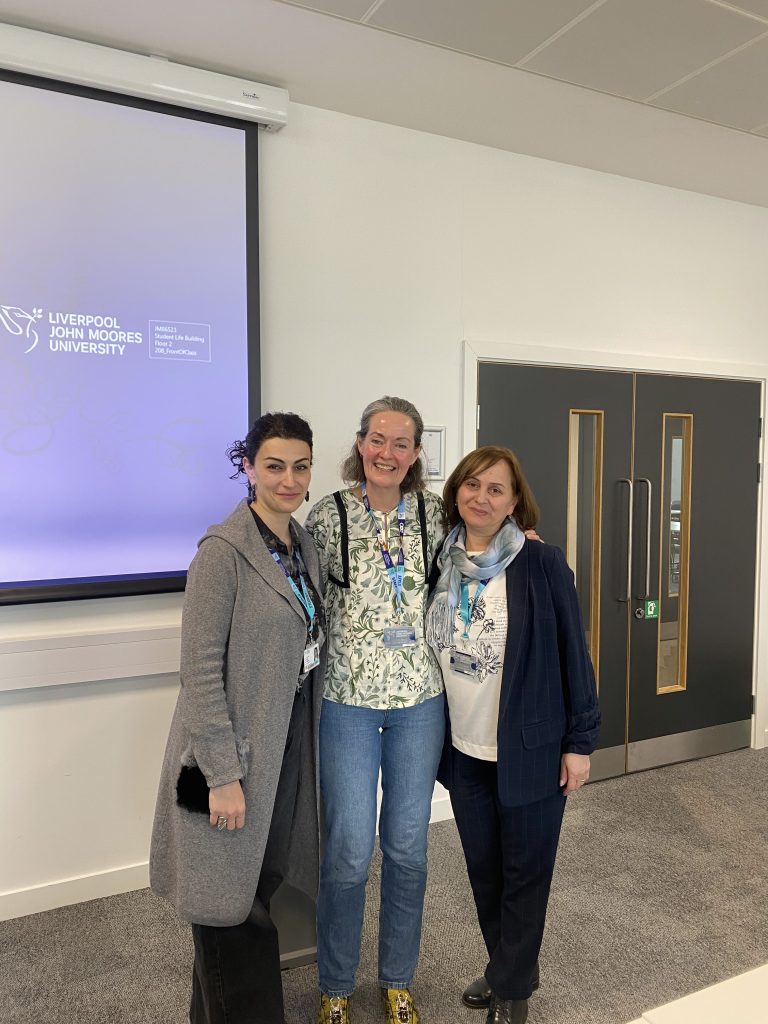
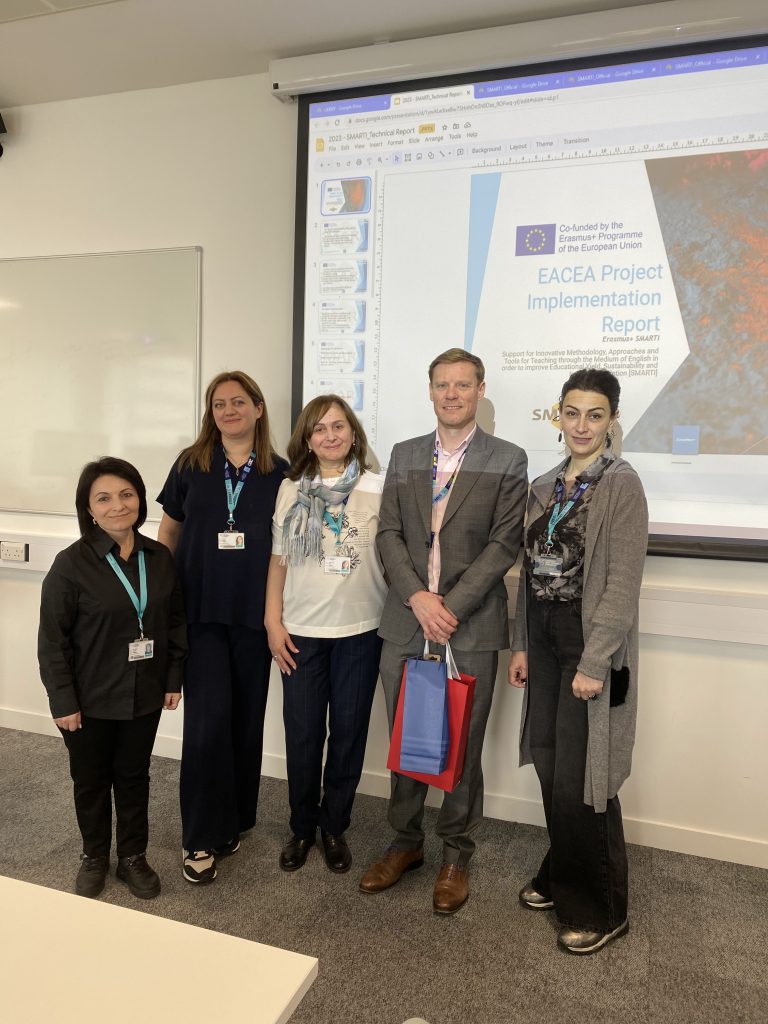
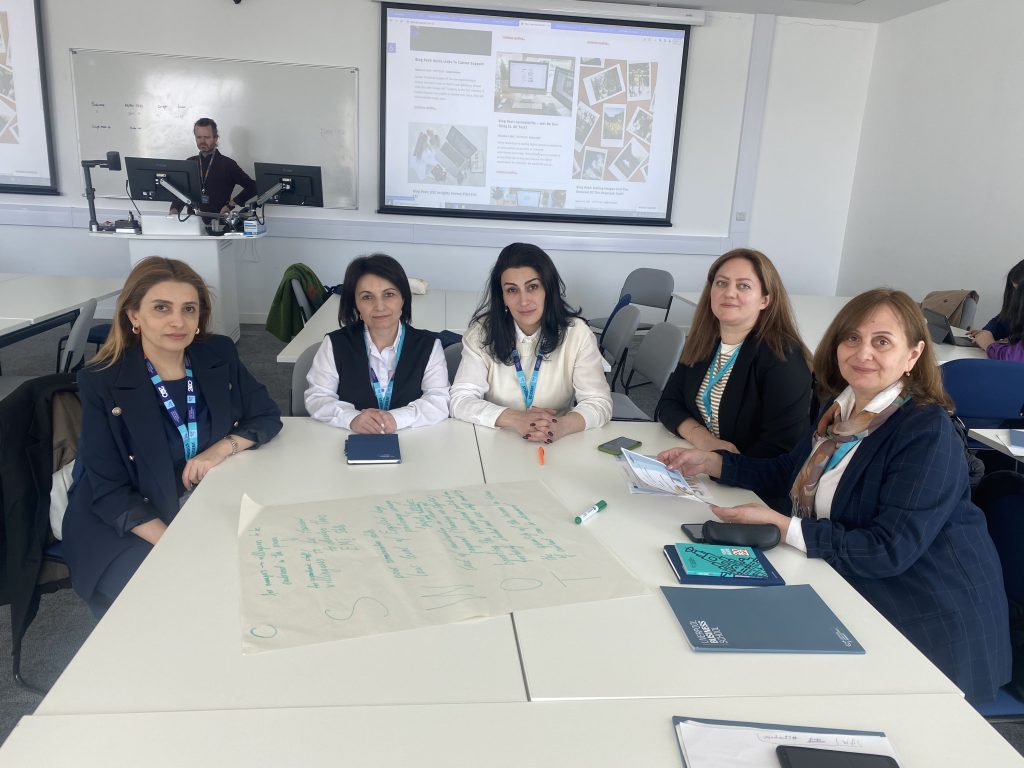
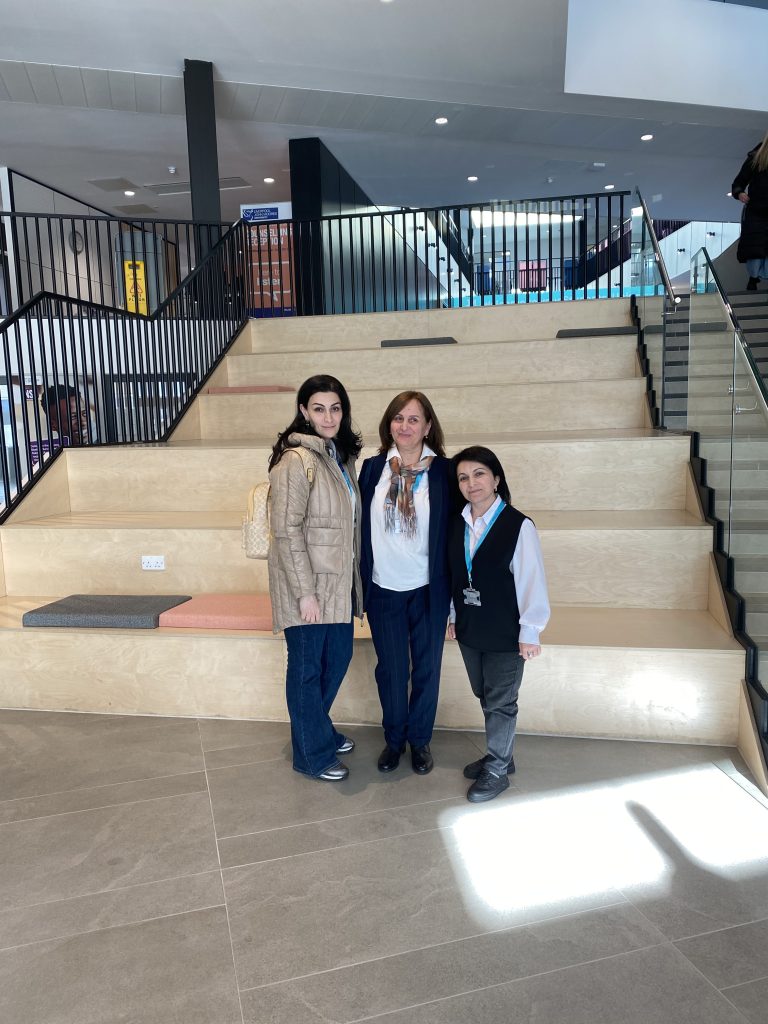
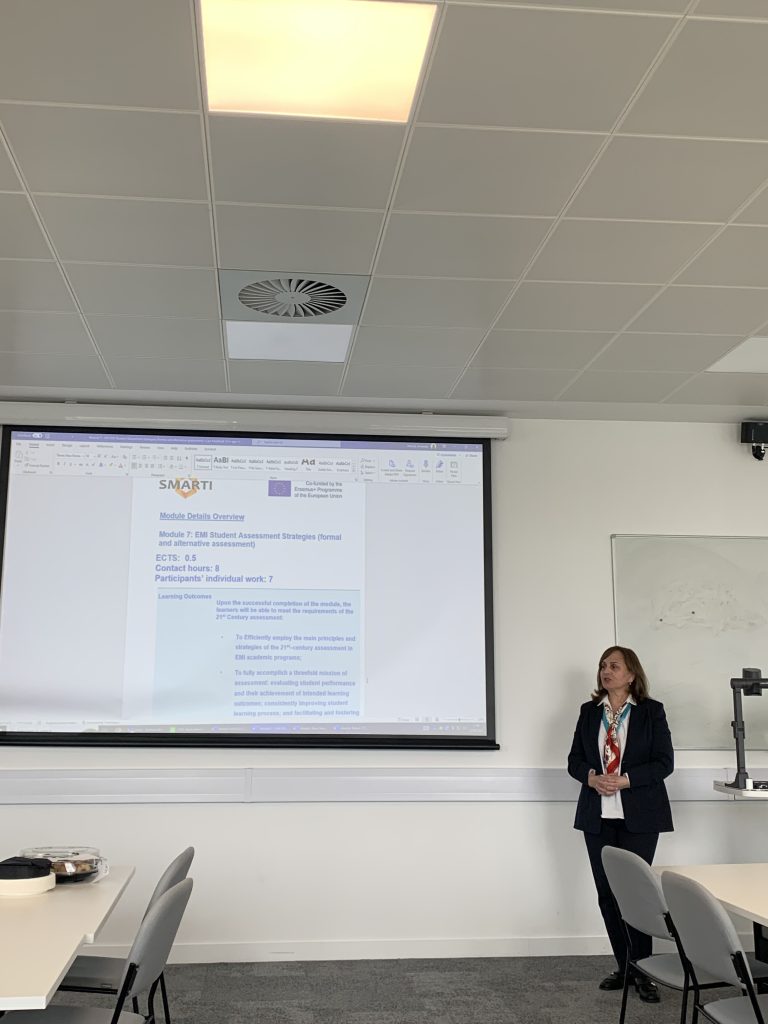

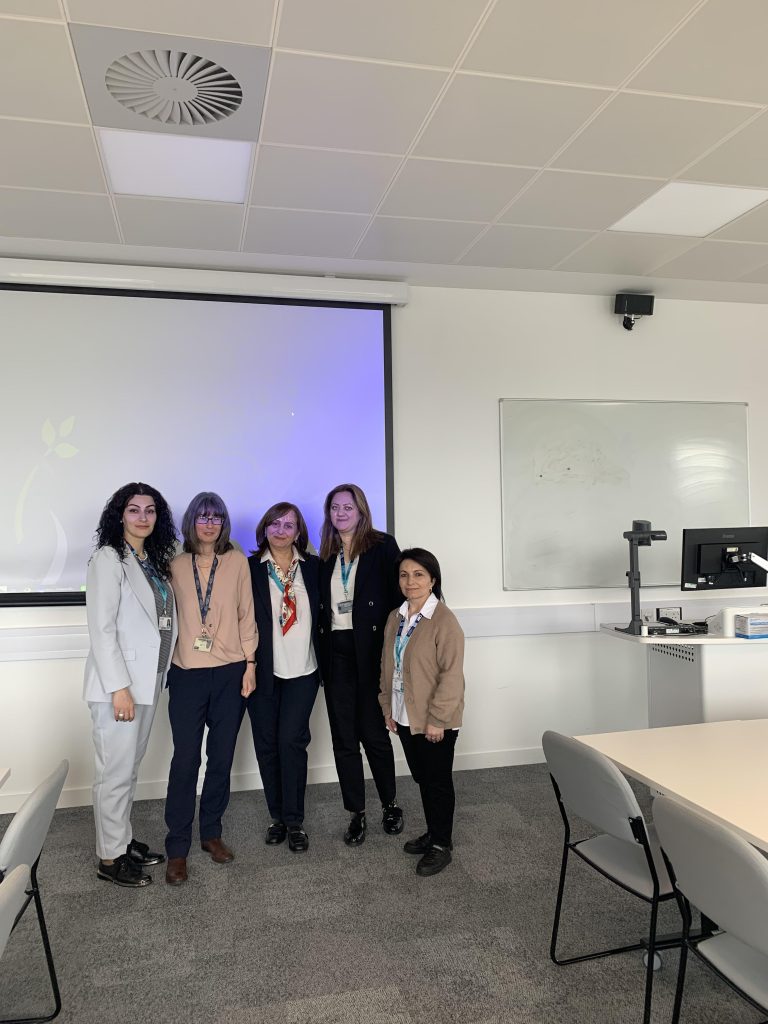
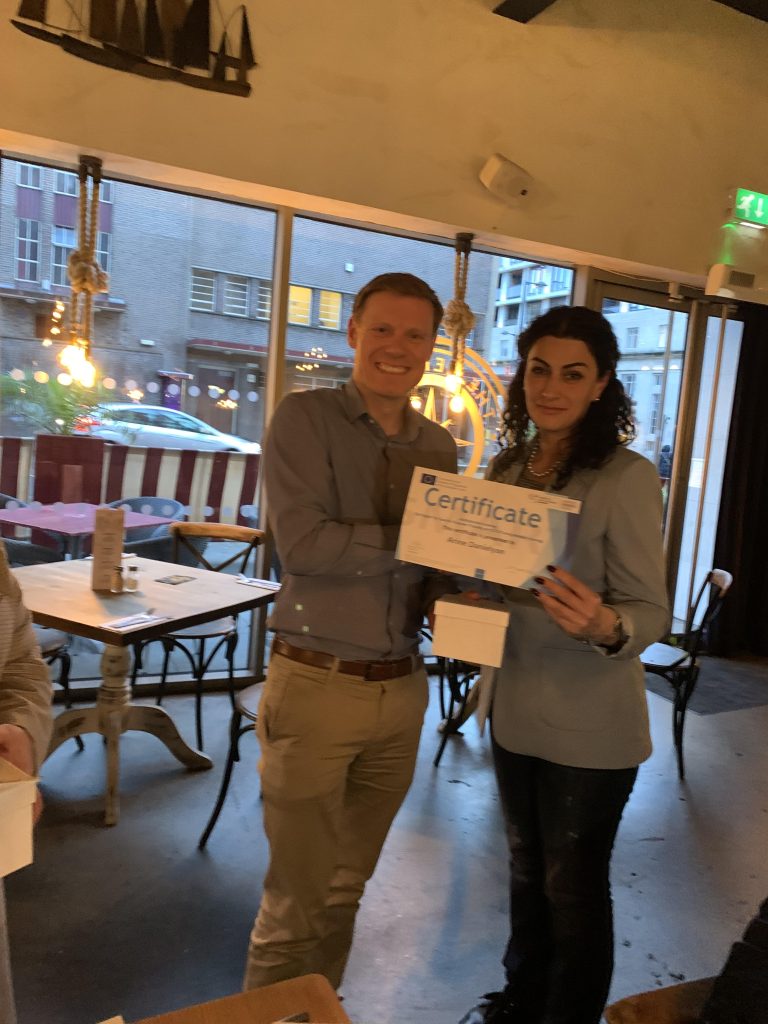


- CALL (+374.322) 41854 or 41855 - 160
- SEND E-MAIL info@vsu.am
- OUR ADDRESS Vanadzor, Tigran Mets 36
